Starting fruit business in kenya
Starting a fruits business in kenya.
Starting a fruit business in Kenya can be a rewarding venture. However, it requires careful planning and consideration of a number of factors to ensure success. Here are some of the things you need to consider before starting a fruit business in Kenya:

Market research:

Conduct market research to determine the demand for the type of fruit you plan to sell. Consider factors such as consumer preferences, competition, and price point.

Choose a location for your business that has a high traffic of potential customers and is easily accessible. Consider the transportation and storage facilities available in the area.
Source of fruits:

Determine the source of your fruits. You can either grow the fruits yourself or purchase them from other growers. Consider factors such as cost, quality, and reliability of the source.
Supply chain management:

Develop a plan for the storage, transportation, and distribution of your fruits. Consider factors such as the type of fruit, shelf life, and market demand.
Legal requirements :

Familiarize yourself with the legal requirements for starting a fruit business in Kenya, including registering your business, obtaining licenses, and following food safety regulations.

Determine the start-up costs for your business and secure financing as needed. Consider factors such as the cost of land, equipment, and supplies.
Marketing and advertising:

Develop a marketing and advertising plan to reach your target market. Consider factors such as social media, flyers, and local advertising.
In conclusion, starting a fruit business in Kenya requires careful planning and consideration of a number of factors. Conducting market research, choosing a location and following legal requirements are just a few of the important considerations you need to make. With careful planning and a focus on customer satisfaction, you can successfully start and grow a fruit business in Kenya. To learn more about business, enroll for a business course] at Finstock Evarsity College .Visit our website www.finstockevarsity.com for more business courses. For more information, Call/Whatsapp 0703 313 722 or email us on [email protected]
Watch a detailed video on how to start a fruits business here STARTING A FRUITS BUSINESS IN KENYA
Share this:

Recent Posts
Our categories.
- Finstock LMS partners
- Job listings
- Undergraduate Degree Courses
- Masters Degree Courses
- PhD Degree Courses
Free Courses
- Short Courses
- International Courses
- Professional Courses
- KCPE Resources
- KCSE Resources
- Curriculum Resources
- CAMS Resources
- CFE Resources
- KASNEB Resources
Finstock Evarsity Resources © 2024 - All rights reserved
Developed by Wits Technologies Ltd
KenyaInvest
Investing in Kenya, Forex trading Kenya, Kenya Invest
How to Start and Run a Fresh Juice Business in Kenya
By developer
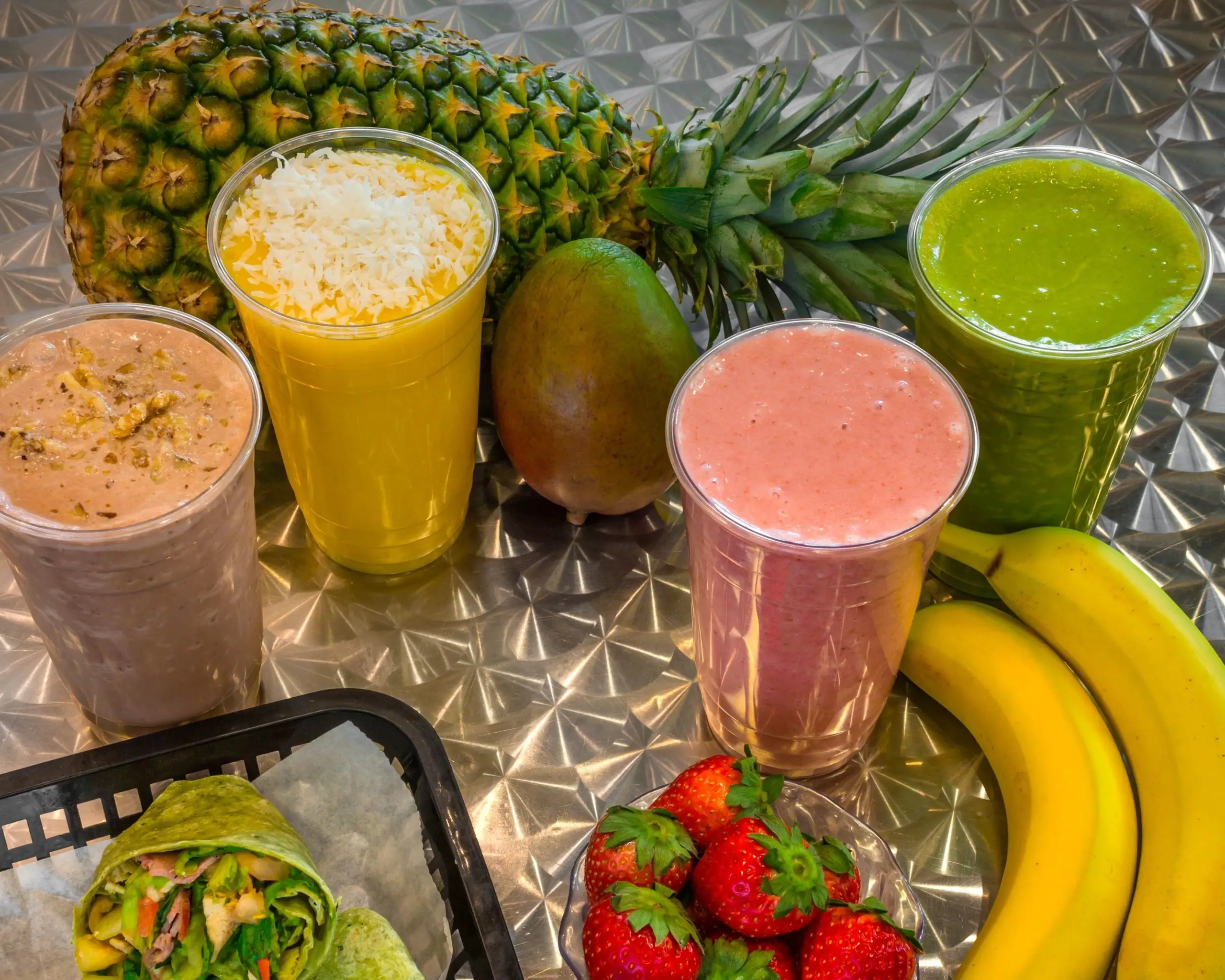
Fruits consumption in Kenya is growing as more people seek healthier lifestyle by eating foods such as fruits. This has resulted in a growth in demand for fruits and fruit juices. Hence, let us look at how to start and run a fresh juice business in Kenya.
Secrets of Becoming a Successful Entrepreneur
Biologically, fruits provide our bodies with vitamins, which in turn help us fight off diseases and increase our immunity. Something we all require as a matter of urgency. To the investors, this is an opportunity to venture into this business that not only has a ready market but also high returns.
Benefits of starting a fresh juice business in Kenya
1. Ready market – There is a ready market for the fresh juice business in the country. However, the level of demand depends on various factors such as location and weather. The market is larger in the urban areas. Regarding the weather, people tend to drink more fresh juice during the hot season.
2. Low initial capital requirement- Unlike other business models which require a huge amount of cash to start, you can start a fresh juice business in Kenya with only Ksh 20,000 depending on your business location. This makes it possible for the majority of Kenyans to get into the business.
How to Start and Run a Wines and Spirits Business Successfully in Kenya
Available resources – the raw materials for operating a fresh juice business are fruits. There are very many types of fruits to choose from within the Kenyan market, and most of them are very affordable. However, you can also farm your fruits and minimize the cost of buying raw materials.
Challenges of starting a fresh juice business in Kenya
1. Perishability of the fresh juice – Fruits and Fresh juice are highly perishable products. This requires you to invest in cold storage facilities. Failure to do so exposes you to losses and low-quality products that could keep customers away.
2. High competition- Low entry requirements both in form of capital and raw materials have attracted a lot of investors in this space resulting in low margins. There is also an increasing number of juice companies that also offers competition to small-scale traders.
3. Weather challenges- Consumption of fruit juice is highly affected by the weather. Hence, sales tend to reduce during the low season. A factor that could make it hard to support the business during such times.
How to start and run a fresh juice business in Kenya
1. perform market research.
Market research is an essential first step before getting into this business. Some of the factors to research include the startup capital, Competitors, and the best products to sell.
From market research, you will identify some of the necessary tricks to make it in the business. Researching your competitors helps you to gain tips on the pricing, products, and location.
2. Identify an ideal location.
Winning in this business is highly dependent on the location. Hence, you should target to set up in an area with high human traffic.
Some of the ideal locations for fresh fruit juice business in Kenya include:
- Near school institutions such as universities and colleges
- On a junction
- Within a town or shopping centers
- Near a market
- Near food eateries
The above areas are places that are easily accessible to potential customers.
Depending on your available capital, you can choose to rent out a room or operate your fresh juice business from a stand. Renting a room will cost you a bit more than working from a juice stand.
The amount of rent is dependent on the business location. Renting a room in a city such as Nairobi costs an average of Ksh 10,000 – Ksh 15,000, while the same room can go for Ksh2, 000-Ksh 5,000 in smaller towns.
Another element to factor in when choosing a location is the business permit. These vary from county to county. The average cost in Nairobi is 15,000 shillings per year. Learn more on How to Get a Single Business Permit in Nairobi.
3. Purchase the relevant equipment
Every business has a specific set of equipment that is necessary for running. For a fresh juice business, some of the equipment that you will require includes:
It is a piece of essential equipment for the fresh juice business. If you already have a blender at home, you can use it when starting your business and then save up for a commercial blender. A blender will cost you from Ksh 2,000 to Ksh 8,000.
As the business expands, consider getting a stronger and bigger commercial blender.
A juicer is a piece of equipment that presses the juice out of fruit immediately. It works by squeezing the fruit to produce juice It is not very important when starting the business, although it can come in handy when your customer base increases.
This includes; knives, bowls, plates, and a chopping board. Since you will be the one responsible for blending your fruits, you need to have the necessary cutlery. The cutlery needs to be clean for hygiene purposes.
Due to the sensitive nature of the business, always ensure to maintain high hygiene standards on the cutlery.
4. Plastic serving tumblers, lids, and straws
You need these pieces of equipment to serve the juice. Due to different customer needs, you should make sure you have them in different sizes. Based on research, the largest fresh juice serving is 500ml.
However, with time, you will identify what is used most and have that in plenty. The cost of this equipment could start as low as 2,000 shillings. This makes it affordable for a starter.
Another point to add is that juice tumblers should be transparent and disposable.
Although most customers will not ask for napkins, it is important to avail them in your business for situations that result in spillages. The extra customer service will help you create brand loyalty among some customers.
6. Plastic storage jerrycans and containers
These are the containers you will use to store the juice that you blend. The storage should be enough to service your needs. Also, ensure to keep them at the top level of hygiene.
I would recommend using translucent containers for storing your juice. Label your juice containers for easier identification by you and your customers.
If you do not want to use plastic containers to display your juice, you can use a rotating juice dispenser. However, the rotating juice dispenser operates using electricity and hence adds extra expenses to your business. A rotating juice dispenser in Kenya costs about Ksh 9,000.
7. Refrigerator
As we discussed earlier, fresh juice is a highly perishable product. There will be days when you blend a lot of juice and some of it is left unsold creating a need for a refrigerator.
A small standard refrigerator goes for an average of Ksh 15,000 in the market. If you do not have the funds to purchase a refrigerator, target to prepare a small amount of juice to minimize the chances of it remaining unsold.
You can also pool to buy or rent a storage facility. However, this can only become possible if you are more sellers in a near location.
8. Shelving unit and juice display counter
The display counter is where you place your juice for display. You will also use it to store the extra cutlery such as tumblers and straws. The most affordable way to get one is to get a local carpenter to make it for you.
4. Get a supplier.
Fruits are the key raw materials for how to start and running a fresh juice business in Kenya. Hence, you should get a reliable and affordable supplier. Some of the most common fruits in this business include. fruits you can include in your fresh juice in Kenya include:
- Passion fruit
Since fruits are highly perishable, especially in hot areas, consider buying unripe fruits to increase the shelf life.
Other costs to factor in while sourcing the fruits include transportation and storage costs. Alternatively, you can also farm some of them if you have the land. This will make it cheaper and more profitable for the business.
Some fresh fruit juice sellers also double as fruit sellers. Selling your fruits can help you finish your stock faster, minimizing the risk of your fruits going bad.
5. Get the relevant permits and licenses
All businesses in Kenya require to have the necessary permits and licenses to operate. Failure to do so makes the business illegal can could lead to legal consequences such as prosecution or business closure.
The main permits required for a fruit juice business in Kenya include:
Business permit – this is a mandatory business license for a business operating in Kenya. The cost of the permit varies with the county of operation and business size. The cost averages between Ksh3, 000 to Ksh10, 000. Mostly this permit requires annual renewal.
The permit is issued by the county government.
Food hygiene license – It is issued once your business has been inspected by a county council member. It shows that your business premise meets the approved hygiene standards necessary for a commercial business. The license costs 1,000 shillings.
Food handlers’ medical certificate – this license is issued to show that none of the people handling food in the business has a contagious disease. The cost for this certificate is Ksh 600, and it is valid for 6 months.
6. Price your products
Pricing is an important step when starting this business. The goal of pricing is to ensure the business is operating profitably after factoring in the operating costs. Some of the factors to consider when pricing includes the area of operation, costs of production, and competitors’ pricing.
7. Launch your business
Once all the above steps are complete, it is time to launch your business.
This is the final step to start offering your products in the market. Launching the business, means you are ready to compete. It is time to use the market research information. During the launch stage, you can plan to offer attractive offers such as discounts.
8. Market your business
Marketing will help create business awareness among your potential customers. Hence, it is a key strategy for increasing your customer base. The best form of marketing is through referrals and can only happen if you are offering good and quality products.
Other forms of marketing include social media marketing. This is where you push your business information through various social pages such as Facebook and Twitter. Learn more on How to Succeed in Social Media Marketing.
Operating a fresh juice business requires perseverance and effort. Delivering high-quality services and maintaining good customer relations are important aspects that lead to success in this business.
With the above information, I trust it will help on how to start and run a fresh juice business in Kenya.
To recap, the steps involved in starting a fresh juice business in Kenya are:
- Perform adequate market research
- Get a good business location
- Purchase the relevant equipment
- Get fruit suppliers
- Acquire relevant permits and licenses
- Pricing your products
- Launch your business.
- Market your business
Related Post
Top 10 best saccos in kenya to join in 2024, top investment opportunities in kenya 2024, top 20 ways how to make money online in kenya, one thought on “how to start and run a fresh juice business in kenya”.
[…] How to Start and Run a Fresh Juice Business in Kenya […]
Leave a Reply Cancel reply
Your email address will not be published. Required fields are marked *
Save my name, email, and website in this browser for the next time I comment.
How to Check the 2023 KCSE Results


How to Start a Juice Business in Kenya

Blending fresh juice business in Kenya is one of the most lucrative businesses to start in Kenya . The business does not require huge startup capital. If you have blending skills and excellent supply of fruits , you can get started. Luckily, the market is not saturated, meaning that the competition is less.
Research the Market
You must study the market to locate a suitable place for your fresh juice business. You also need to identify fruits that people love most and where to source them. Also, identify fruit blending equipment you require for the business.
Write a Fruit Juice Business Plan
You need to plan your business well before launching one. A business plan helps you put your ideas on paper before implementing them. A good fruit juice business plan should have the following:
- Startup costs
- Business location
- Type of fruit juices to sell
- Target market
Identify Fresh Juice Business Location
A fresh fruit blending business is best suited for fast-growing areas and near institutions like schools , banking halls, churches, etc. Also, the business does well near bus stops. Get a place with high foot traffic. It is likely to get offices and institutions that can make supply orders for their employees during tea breaks.
Also read: How to start a fast food business.
Equipment for a Fresh Juice Business in Kenya
To start fresh juice blending business in Kenya, you need the following equipment.
- Commercial blender - Ksh 7,500
- Vegetable peeler - Ksh 2,500
- Juicer - Ksh 5,000
- Fridge - Ksh 15,000
- Juice dispenser - Ksh 9,000
If you are just starting, and you have limited capital , you do not require all this equipment. You can start with the essentials like a blender and juicer and purchase the rest as your business grows.
The Cost of Starting a Fruit Vending Business in Kenya
You can start a fresh juice blending business with as little capital as Ksh 50,000. However, startup costs depend on the size of the business and its location. The following is a fruit parlor capital breakdown.
- Equipment – Ksh 8,000
- Business permit – Ksh 8,000
- Furniture – Ksh 5,000
- Rent – Ksh 10,000
Secure Necessary Business Licences
To start a fruit parlor in Kenya, you need a set of business permits . You need to comply with health and food hygiene regulations. These are the licenses that you need.
- Single Business Permit. You can get a single business permit from the county government offices. The cost varies from one county to the other. The price range is between Ksh 6,000 and Ksh 10,000 every year.
- Food Hygiene Licence. To get the food hygiene licence, health officials need to visit your business premises for inspection. When applying for the licence, you must indicate your business location so that health officials can visit for inspection. For small businesses, licences cost between ksh 500 and Ksh 2,000.
Package Your Fruit Juice
First, you need how to make fruit juice for business. Once the juice is ready, you can package it well in containers. For small orders, you can package juices in disposable cups with lids and straws. For large orders, you can get jerry cans for packaging. The quantity of orders will help you know the packaging materials to use.
Identify Adequate Fruits Supply
It would help if you had an adequate supply of a variety of fruits. You should buy fruits wholesale. Sometimes it is also best to purchase unripe fruits to avoid fruits from going bad. Unripe fruits are cheaper compared to ripe ones. If there is a fruit farmer near your business, you can source fruits from him.
The following are some fruits you can use for blending juices.
- Passion fruits
- Thorn melon
Read also: Profitable fruit business ideas to start.
Market your Fruit Juice Business in Kenya
Marketing is an essential aspect of any business. You need to promote your fruit parlour business and let potential customers know you are selling fruit juices. You can place posters or give business cards to your customers.
For business consultancy, strategic planning, organizational development, market research, financial management & accounting, risk management and business plan writing at an affordable fee, please reach out to us through a phone call 0728 621 138 or WhatsApp , or email: [email protected]
Is Fruit Juice Business Profitable in Kenya?
Yes. A fruit juice is a profitable venture in Kenya if you get a good business location with large number of customers. Starting a juice business in Kenya will require you to aggressively market your business, especially if you are just starting. To make it in the business, ensure high levels of cleanliness in your business and also strive to offer the best customer service.
To start and succeed in fresh juice business in Kenya, you need to know how to blend fruit juices. Make sure that your fruit parlour is clean and neat. Customers get impressed with business cleanliness. They will be visiting your premises and can refer their friends to your business.
- How to start fruits business in Kenya
- How to start a chips business in Kenya
- How to start a fast food business in Kenya
- How to start a milkshake business in Kenya
Get in touch
For business consultancy, business plan writing, market research, strategic planning, risk management, financial management & accounting at an affordable fee, please reach out to us through:
- [email protected]
- +254 728 621 138
- 1503 -01000, Thika KIBS Plaza, Thika

- Play group notes and exams
- pre-primary 2 notes and exams
- pre-primary 1 notes and exams
- Grade 1 notes and exams
- Grade 2 notes and exams
- Grade 3 notes and exams
- Grade 4 notes and exams
- Grade 5 notes and exams
- Grade 6 notes and exams
- Grade notes and exams
- Grade 8 notes and exams
- Form 1 notes and revision exams
- Form 2 notes and revision exams
- Form 3 notes and revision exams
- Form 4 notes and revision exams
- KCSE Marking Schemes
- set book guides
- secondary school schemes of work
- pre-primary 1 (pp1) schemes of work
- pre-primary 2 (pp2) schemes of work
- grade 1 schemes of work
- grade 2 schemes of work
- grade 3 schemes of work
- grade 4 schemes of work
- grade 5 schemes of work
- grade 6 schemes of work
- grade 7 schemes of work
- grade 8 schemes of work
- kasneb cpa revison kits questions and answers
- kasneb past papers
- 2023 KASNEB Fee Structure download
- Kenya Business Plans
- Crop and animal production guides
- Kenya Cookbook and recipes
- Novels and Story books
- kids story books
- guides and insight
- April Holiday Assignments NEW
- Business Plans
GUIDE TO START FRUIT PARLOR BUSINESS IN KENYA

Unlike a decade ago, most Kenyans are turning to healthy living. Nutritionists recommend eating a fruit (or several) daily to strengthen your immune system.
The fruit vending business is rapidly growing and many entrepreneurs are investing in this business. To remain competitive and relevant, do a thorough research on the source of supply, location and marketing strategies for the business. At the business premises, maintain high levels of cleanliness to attract and maintain customers. From our desk, we wish you all the best as you embark on starting a fruit vending business.
Description
The fruit vending business is rapidly growing and many entrepreneurs are investing in this business. To remain competitive and relevant, do a thorough research on the source of supply, location and marketing strategies for the business. If the business is busy during the evening than in the morning hours, you can do office deliveries during the day and open in the afternoon. Alternatively, you can hire an assistant to help you in doing deliveries and in general sales. At the business premises, maintain high levels of cleanliness to attract and maintain customers. From our desk, we wish you all the best as you embark on starting a fruit vending business.
All business plans have 5 basic pieces of information. They include a description of your business, an analysis of your competitive environment, a marketing plan, a section on HR (people requirements) and key financial information .
MORE BUSSINESS PLANS
Related Posts:

Related items

GUIDE TO START A BAR BUSINESS IN KENYA
Putting up and running your own bar sounds like a good business idea in Kenya at the moment. But are you up to it?
Running your own bar requires careful planning, hard work and long hours. All you have to do is research carefully and set your goals properly. on this Guide, we are going to highlight some of the factors you have to put into consideration before starting a bar business in Kenya.

GUIDE TO START CHIPS AND CHICKEN BUSINESS IN KENYA
Potato chips (fries) is a favorite meal for many people and especially women and children. This makes the chips business in Kenya a lucrative venture. The business is viable in most parts of the country, both rural and urban areas.

GUIDE TO START GIFT SHOP BUSINESS IN KENYA
Gifting is a pleasure for both the recipient and the giver. We all have received gifts from our loved ones at some point in time, be it big or small. Whether it is a wedding or a birthday, a baby shower or anniversary, we never turn up on any occasion without carrying a gift. Gifting is pretty standard in Kenya, but still, the gifting industry is quite underrated.
So if you are naïve in business but want to establish a profitable business, you should consider a gift shop a great business option. While considering this business idea, you may recall many such gift stores which are not doing great. It is mainly because of poor planning or no planning at all. A good business plan can easily lead to the profitable growth of any business.

GUIDE TO START A BOOTLED WATER BUSINESS IN KENYA
Are you considering starting a water supply business in Kenya? Or perhaps you’re interested in the bottled water industry? Kenya’s growing population and increasing demand for clean drinking water make it a promising market for such ventures. On this guide, we will discuss the steps involved in starting a water supply business or a bottled water business in Kenya, providing you with valuable insights and guidance.
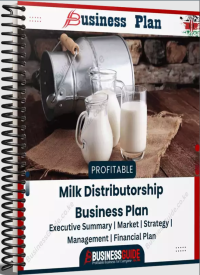
GUIDE TO START A MILK RETAIL IN KENYA
Milk is one of the essential products in a family. Many people use it to prepare tea while others take it raw. The demand for milk makes the milk business a profitable venture to start in Kenya. To succeed in it, it is best that you start it in areas where milk supply is scarce.
on this guide, we explore how you can start a milk business in Kenya

GUIDE TO START A HANDBAG RENTAL SERVICE IN KENYA
At the very basic the business idea is largely based on the rise of many aspirational female consumers in Nairobi. A woman in this group will wish to have a handbag for every occasion , clothes, day of the week , weather or even holiday
To them fashion items like clothes , shoes and handbags are a lifestyle habit Now what if there was a facility to bridge the income and aspirations of this group of female consumers by leasing out fashion items, particularly handbags?

GUIDE TO START GAS RETAIL BUSINESS IN KENYA
The use of LPG (Liquified Petroleum Gas) in cooking in Kenya is increasingly in demand, since many people in urban areas prefer to use gas for cooking. Recently, there has been the establishment of many LPG companies to meet the demand for gas. Since gas is becoming an essential commodity in households, and starting cooking gas business in Kenya to provide gas will earn you good profits. If you wish to start a gas refilling business in Kenya, it is an excellent idea.

GUIDE TO START A SMOKIES AND EGGS BUSINESS IN KENYA
The eggs, sausages, and smokies business is a small-scale business that is gaining popularity in the country. With the high rates of unemployment in Kenya, people are turning to self-employment and enjoying its flexibility. If you want to be your own boss and start making good profits, this article will take you through how to start an eggs, sausages and smokies vending business in Kenya.

GUIDE TO START A FLOWER SHOP BUSINESS IN KENYA
Owning a flower shop typically involves renting a space from which you will sell floral arrangements. Owners purchase these arrangements at wholesale price and resell them to consumers for a profit.
Florists provide cut flowers and floral arrangements for all these occasions. They not only offer people beautiful flowers, but they help arrange flowers, so they look good and make recommendations if customers aren’t sure of what to get.

GUIDE TO START A MOVIE SHOP BUSINESS IN KENYA
Movie shops started out as a small business but currently, they are one of the most lucrative businesses to venture into right now especially for young people. If you are a movie junkie and have been thinking of running a profitable movie shop, here are a couple of things you need to know;

Your browser is ancient! Upgrade to a different browser.
How To Start An Exotic Fruits Retail Business [Apples, Peach, Grapes, Kiwi Fruits] With Ksh5,000
October 13, 2016 Published by: James Keru -->
Growing awareness of the value of healthy eating is good news for anyone interested in starting a small fruits shop, whether you grow the fruits yourself or not. You only need to set up shop in a good location and stock it with exotic fruits like apples, peach, grapes, kiwi fruit, strawberries, oranges and bananas.
The difference between exotic fruits and the fruits that are available in our markets is that the exotic ones are high-grade import quality. They come packaged in cartons and are generally appealing to the eye as they don’t have blemishes. One major benefit of dealing with exotic fruits as opposed to any other category of fruits is that they tend to fetch better profit margins and they sell fast.
Small Fruits Shop Business Idea in Kenya
You have 3 options.
There are three ways to get these fruits although only one option happens to be the easiest for a beginner.
Option 1: Start a farm, grow the fruits and sell them off. This is a rather expensive and time consuming process although it generally has the best long-term returns.
Option 2: Import the fruits from other countries in the region like South Africa (there is a company called Dutoit that supply to Kenya and other African countries). This option is also rather expensive as it requires one to have the capacity to order large quantities. Its advantage is that it offers better returns particularly in the short-run.
Option 3: Purchase from wholesalers and re-sell to your market. This is the cheapest and most feasible option for a small investor. You can get started with as little as Ksh5,000. On the flipside, though, there is intense competition and one has to really think outside the box in order to operate profitably.
Getting Started
The method you choose to start with depends on the amount of money you have to spare. If you are starting out on a really tight budget, then you only need to hawk your fruits on the streets or market them on Facebook or Whatsapp and deliver door-to-door to your customers. If you have a small car, then you can start by setting up a car boot sale whereby you use your car’s boot to sell o the streets. If you have some more cents to spare and you prefer to operate from a permanent location then you can start a fully-fledged shop preferably located on a street with high foot traffic.
Where to Get the Fruits
A good place to be ordering your fruits on a wholesale price is at Nakumatt Highridge which is located in Parklands, Nairobi. Once you arrive in town you can board matatu number 11A at Koja Mosque Round-about.
The wholesale shop normally open from 4.00am to 7.30am (Mon to Sat) meaning you have to be an early bird to take full advantage of this window of opportunity. Most of what is sold in this early hour is sold in bulk i.e. in cartons.
The table below shows you wholesale prices versus retail prices (i.e. prices you can sell your fruits at and still make profit.)
Note that the prices listed above may change as factors of the market change from time to time. A carton of apples goes for around Ksh3,400…meaning to start with a capital of Ksh5,000 it would be best to start with one carton of apples and a few oranges and bananas. No license is required if you are going to operate on a freelance basis. But if you are going to open a permanent shop then you’ll be required to pay for a single business permit (charges for this license vary from one county to the next).
- Business is susceptible to cut-throat competition especially in high density commercial areas
- One has to wake up at wee hours of the night to get the best deals
- Those in upcountry settings far away from the capital may have to arrange their travel in advance
Add your thoughts about this story
Related stories, how technology is creating a new force of youth entrepreneurs in kenya, multitasking skills you can adopt in your small business, all you need to avoid untimely ‘death’ of your small enterprise, ways to manage debts in your small business, lucrative small business ideas through 2022, rise in cooking oil prices in kenya creates lucrative business for pork lard seller, starting small in fast-moving products distribution business, starting profitable private lending business in kenya.
GET IN TOUCH
About kuzabiashara, most popular.

How To Start A Juice Business In Kenya Easily & Succeed
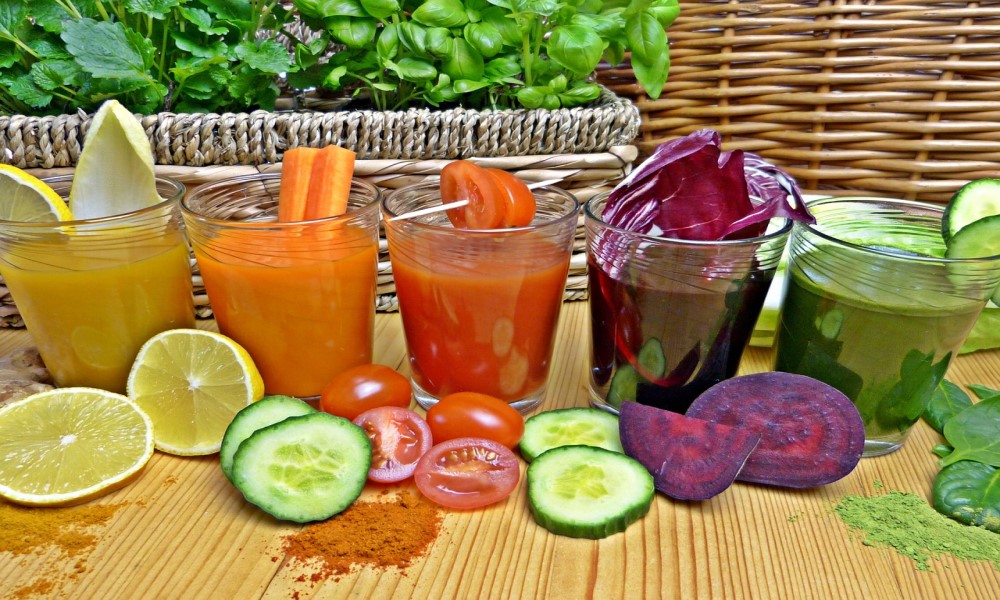
How to start a fresh juice business in Kenya can be so easy or complicated depending on the type of information you have. Starting a juice business is a very lucrative business idea in Kenya as many people like soft drinks especially during hot seasons.
Perhaps you have been stranded in knowing how to start a juice business from home. Worry no more because I have a whole package for you that will guide you in ensuring you are successful at the end of the tunnel.
Here are the tips to follow on how to start a juice business in Kenya:
Step 1: Carry out an intensive market research that will help you gather information on whether juice business is worth investing in or not..
Step 2: Draft a fruit juice business plan that will act as your guide in the starting and managing of your juice business.
Step 3: Locate an ideal place where you will set up your juice palour design.
Step 4: Choose the name that you will use in your fruit juice business.
Step 5: Register your business to make it legal and protect your juice brand.
Step 6: Apply for the business permits and licenses to protect you from the inconveniences caused by the local authorities “kanjo”.
Step 7: Buy your required equipment that will facilitate your business.
Step 8: Market your business to make it famous thus attracting more customers.
This is also a method you can use on how to start a fruit business in Kenya. I wish you all the best as you start your juice business in Kenya.
Best Way To Preserve Juice For Sale
You may also be interested in knowing how to preserve juice for sale and I am going to show you step by step how you will do it:
1. Once you are done with preparing juices, package them into bottles and properly seal the bottles.
2. Do the labelling of the juices .
3. Use a refrigerator to store your juice in order to maintain the freshness.
These steps will help you to have fresh juice attracting more customers at your doorstep.
Profitability Of Juice Business In Kenya
Is fruit juice business profitable in Kenya? Yes, fruit juice business is very profitable due to the high demand of cold fruit drinks during summer.Besides,it is among the unleashed businesses in Kenya making it have minimum capital thus very profitable.
To summarize, venturing into juice business in Kenya will really help you improve your living standards due to its high profitability. Invest today for a better tomorrow.
Kenyans Consult
At Kenyans Consult, we are proud Kenyan writers. We write anything that pertains to Kenya and is worth sharing. We hope to share more about Kenya with the world through our writing. Check our articles to learn more about Kenya.
Recent Posts
Newcastle vs Arsenal: Clash of Titans - Live Stream, Team News, and More
In an electrifying face-off at St. James' Park, Newcastle United braces itself to challenge the unstoppable Arsenal this Saturday at 1:30pm ET. The Premier League battle promises intense action and...
Government Spokesman Office Finds New Home at the Presidency
In a groundbreaking move that heralds a new era for government communication, the office of the government spokesperson has been relocated from the Ministry of Information, Communication, and the...
- Sunday, May 19, 2024
- Advertise With Us
How to Start a Fruit Vending Business in Kenya
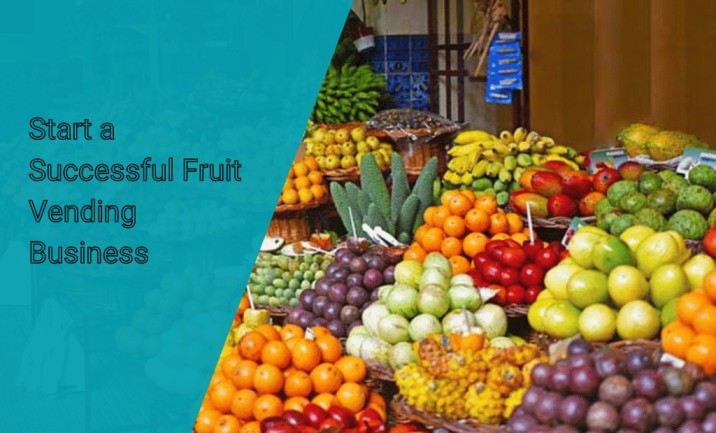
Unlike in the past, many Kenyans have started embracing a health-conscious lifestyle. This rate has been prompted by nutrition experts advocating daily fruit consumption to boost immunity.
The research shows that there is a surge in lifestyle-related ailments, which is necessitating a clear preference for organic produce.
Fruits provide a rich source of vital nutrients, including vitamin C, folic acid, potassium, and dietary fiber, rendering them a versatile option for breakfast, snacking, or dessert.
As a result, establishing a fruit vending business offering fresh fruits and fruit salads is commendable and aligns well with the prevailing high demand for these healthy options.
It would be best to understand that this business venture does not necessitate a significant initial investment. You can start with as little as Ksh 5,000.
In the ensuing discussion, I will guide you through 6 steps of setting up a successful and profitable fruit vending business within the Kenyan market.
Table of Contents
1. Research the Market
Like any other business, conducting comprehensive market research is the first step in launching your fruit vending business. You must identify the types of fruit in demand and delve into the complexity of the market.
Begin by pinpointing the specific popular fruits in your target location. Consider seasonal variations and consumer preferences. Assessing the demand for organic or locally sourced fruits necessary in catering to the evolving market trends.
You must conduct a competition analysis. You must recognize the key players in the market, their pricing strategies, and their customer base.
It would be best if you also comprehended potential challenges that may arise, such as supply chain issues or fluctuating fruit prices, to equip you to develop effective contingency plans.
Use this step to identify a strategic location for your business. As a beginner, I recommend areas such as near schools, offices, or bustling streets to enhance your potential for success.
Also read: 10 Profitable Businesses to Start with Ksh 50K in Kenya (2024)
What is the source of ideas for Market research for your fruit venting business?
Friends and Family . Reach out to your friends and families who are conducting business. This person can help you understand the complexity and requirements to thrive.
Contact entrepreneurs who are already in the fruit vending business. During your research, ask them how to conduct the company, the common challenges, and the reliable suppliers.
Read a lot. Remember, most established entrepreneurs hesitate to share information about their business. Search online for resources like the one you read to get insights on creating a successful fruit vending business.
Observation and interview. Where are you planning to locate your business? Visit the place personally. Evaluate demographic characteristics such as education levels. Interview some residents. Ask them about your idea’s profitability and any other relevant inquiry.
2. Write a Fruit Vending Business Plan
Whether a large or small business, you must have a business plan before launching your fruit stall.
A business plan should not necessarily be detailed and very comprehensive. Just sketch something that will act as your roadmap to guide your business toward success.
This document allows you to clarify essential details and anticipate challenges.
Consider the following critical areas in your fruit vending business plan;
- Determine your startup and operational costs , including the price of fruits, equipment, permits, and marketing expenses.
- Identify your target market . Understand their demographics and preferences to inform your marketing strategies and product selection.
- Choose a strategic business location . I recommend near schools, busy markets, or office areas to maximize visibility and customer traffic.
- Specify the types of fruits you intend to sel l. Consider seasonal varieties, organic options, and unique choices to cater to diverse customer preferences.
- Consider how your business will be managed. Will you operate it solely, or are you going to employ someone?
- Identify how you will manage your financial account (profit, losses, suppliers, and debts).
3. Identify a Fruits Business Location
Every entrepreneur aspires to sell their products quickly and throughout the day. It is essential to pinpoint specific locations with the potential for success.
Note: Don’t choose a location just because you found a cheaper store to let.
Busy marketplaces and near institutions, such as schools, can be promising venues. These places host a considerable number of individuals who may appreciate the availability of fresh fruits.
Bus stops also present a lucrative opportunity. Passengers traveling long distances may spend hours on the road before reaching their destination.
Fruits offer a convenient and non-disruptive snack option, unlike beverages, which can lead to bus stops for consumption.
Also read: How to Start a Hardware Store in Kenya (2024)
The primary focus for this business should be areas with a high volume of pedestrian traffic. Parents, in particular, are inclined to purchase fruits for their children.
Their consistent patronage can significantly boost your sales, ensuring a profitable day’s end.
4. Identify Reliable Fruits Supply
You must have a reliable and diverse fruit supply. Ensure you rely on suppliers with a reputation of offering dependable, quality, and cost-effective suppliers.
The following are key supplier options you can consider when establishing your business;
Direct from Farmers: Create direct partnerships with local farmers. This direct sourcing approach supports the community, guarantees freshness, and reduces intermediaries, enhancing profit margins.
Wholesale Suppliers: Collaborate with established wholesale suppliers. Buying in bulk from wholesalers often proves more economical compared to retail purchases.
It allows you to access a wide range of fruits at competitive rates, catering to the demands of your diverse customer base.
Fruit Plantations: Explore opportunities to source fruits from fruit plantations or orchards. This can provide you with a continuous supply of specific fruits that are in high demand, enhancing your product selection and meeting market needs more effectively.
5. Cost and Equipment for the Business
The financial aspects of launching a fruit and fruit salad enterprise hinge on multiple variables, including business scale, the type of fruits to be offered, and the chosen business location.
At a basic level, you will need the following to start your profitable fruit vending business in Kenya;
a) Fresh Fruits
Sourcing fresh fruits is the cornerstone of your fruit vending enterprise. Identify suppliers or wholesale markets that provide a variety of fruits at competitive prices.
Alternatively, establish connections with local fruit farmers, ensuring a more cost-effective and fresher supply.
Initially, prioritize fruits that enjoy high demand in your target area, assessing local vendors to determine popular choices, which often include bananas, thorn-melon, mangoes, pineapple, apples, oranges, watermelon, and pawpaw, depending on the season.
b) Cutlery, Utensils, and Water Supply
You must have knives, cups, bowls, sieves, and other cutlery. These items are readily available in supermarkets and open markets.
Adequate water supply, including a small tank for handwashing, is crucial for ensuring hygiene. Ensure your stall has a proper and continuous water supply.
Choose items that offer good service at reasonable prices. Opt for transparent, disposable plastic cups for fruit juices. Invest in durable melamine bowls or plates for salads.
c) Juice Blenders
Blenders are accessible through supermarkets and online retailers. Initially, consider acquiring two blenders as a precaution against unexpected malfunctions.
A dependable juice blender can cost between Kshs—2,000 and Kshs.10,000, with varying prices based on features and models. You can purchase specific blenders for each type of fruit used to make juice as your business grows.
d) Seating Arrangements
Yohaded plastic chairs, stools, or a bench for your customers. As your customer base expands, you can explore customized options for comfortable seating.
Plastic chairs typically cost around Kshs.600, while plastic stools range from Kshs.250 to Kshs.350.
e) Display Counters and Shelves
The display counter and shelf requirements depend on your location and available space. Local Juakali artisans may provide metal displays, or you can contact a carpenter for customization. The cost varies widely based on your preferences. It typically ranges from Kshs.4,000 to Kshs.50,000.
Also read: How to Start a Commercial Cleaning Business in Kenya (2024)
6. Secure the Necessary Business Licenses
You must obtain the licenses and permits to legally operate your fruit vending business. You will likely not like to play hide and seek with county government tax collection officials. Here’s an overview of the essential documents for the fruit vending business:
a) Single Business Permit
You need to legitimize your operations by obtaining a single business permit issued by the county government. The exact fee varies based on your location and can range from Kshs. 2,500 to Kshs. 15,000. For precise figures, consult your local county or sub-county authorities.
b). Food Hygiene License
Public health officials may inspect your fruit parlor premises before granting this license. For small businesses, the annual cost typically falls within the range of Kshs. 300 to Kshs. 1,000.
c). Food Handler’s Medical Certificate
All employees, including you, handling food at your establishment must undergo a medical examination to ensure they are disease-free. This certificate, obtained from county offices, typically costs around Kshs. 600. It is renewed semi-annually.
7. Marketing Fruit Vending Business
Marketing plays a crucial role in the success of the fruit vending business. Follow the below approaches to attract and retain your potential customers.
Eye-catching Signage: Invest in vibrant, attractive signage for your fruit stall or kiosk. Design clear, well-designed signage that can grab the attention of passersby and entice them to check out your offerings.
Sampling: Offer free samples of your fruits or fruit salads to passersby. Let them taste the quality and freshness of your products. This can be a powerful way to win over potential customers.
Cleanliness: Maintain a spotless and well-organized vending area. A clean and appealing setup not only attracts customers but also reassures them about the hygiene and quality of your products.
Promotions and Discounts : Run promotions and offer discounts, especially during off-peak hours. Special deals or loyalty programs can encourage repeat business.
Customer Feedback : Encourage customers to leave feedback and reviews. Both negative and positive thoughts can help you understand areas you need to improve.
Personalized Service: Develop a friendly and personable approach with your customers. Greet them warmly, offer recommendations, and make them feel valued.
Potential Challenges Fresh Juice Business in Kenya
Like any other business, you anticipate several challenges in the fruit vending business. Two three challenges that you may encounter include the following;
Perishability: Fresh fruits and juice are highly perishable. If not well managed, you will record a significant loss that may result in a business downfall.
I recommend you buy fruits depending on the number of customers. Consider investing in cold storage facilities to prevent losses and maintain product quality when your business grows.
High Competition: The industry’s low entry requirements, in terms of both capital and raw materials, have attracted numerous investors, resulting in narrow profit margins. Additionally, the rapid increase in juice companies intensifies the competition for small-scale traders.
Weather Sensitivity: Fruit juice consumption is weather-dependent. Sales tend to decrease during low seasons and increase during high season. You should understand this fluctuation to sustain the business.
Wrapping Up
In Kenya, the fruit vending business is a profitable venture. This industry is experiencing rapid growth, attracting entrepreneurs looking to invest in this promising sector.
You can thrive in this business by conducting comprehensive research on supply sources, selecting strategic locations, and implementing effective marketing strategies.
You should adapt to customer patterns, such as offering office deliveries during the day and opening in the afternoon when business can further enhance your success.
Offering personalized services, having eye-catching signage, and maintaining high cleanliness standards at your premises are critical to attracting and retaining customers.
Leave a Reply Cancel reply
Your email address will not be published. Required fields are marked *
Save my name, email, and website in this browser for the next time I comment.
Let's Plan Your Juice Production Business in Kenya
Overview of risks & opportunties of juice production, opportunity rating, risk rating, highlights of a juice production, starting a juice production, products and services, how to operate a juice production, marketing & sale for a juice production, major risks in a juice production, how much can you make in a juice production, step by step guide of starting a juice production business, relevant news, videos we "really" like, would you recommend this opportunity, step-by-step guides from established entrepreneurs and experts: business plans, technical guides, financial analysis, best practices, etc. (pdf, word, excel), compare juice production to other businesses, juice production vs. chicken farm, juice production vs. fish farm, juice production vs. watermelon farm, juice production vs. pig farm, juice production vs. beef farm, juice production vs. honey farm.
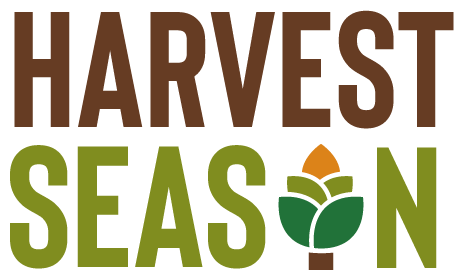
No products in the cart.
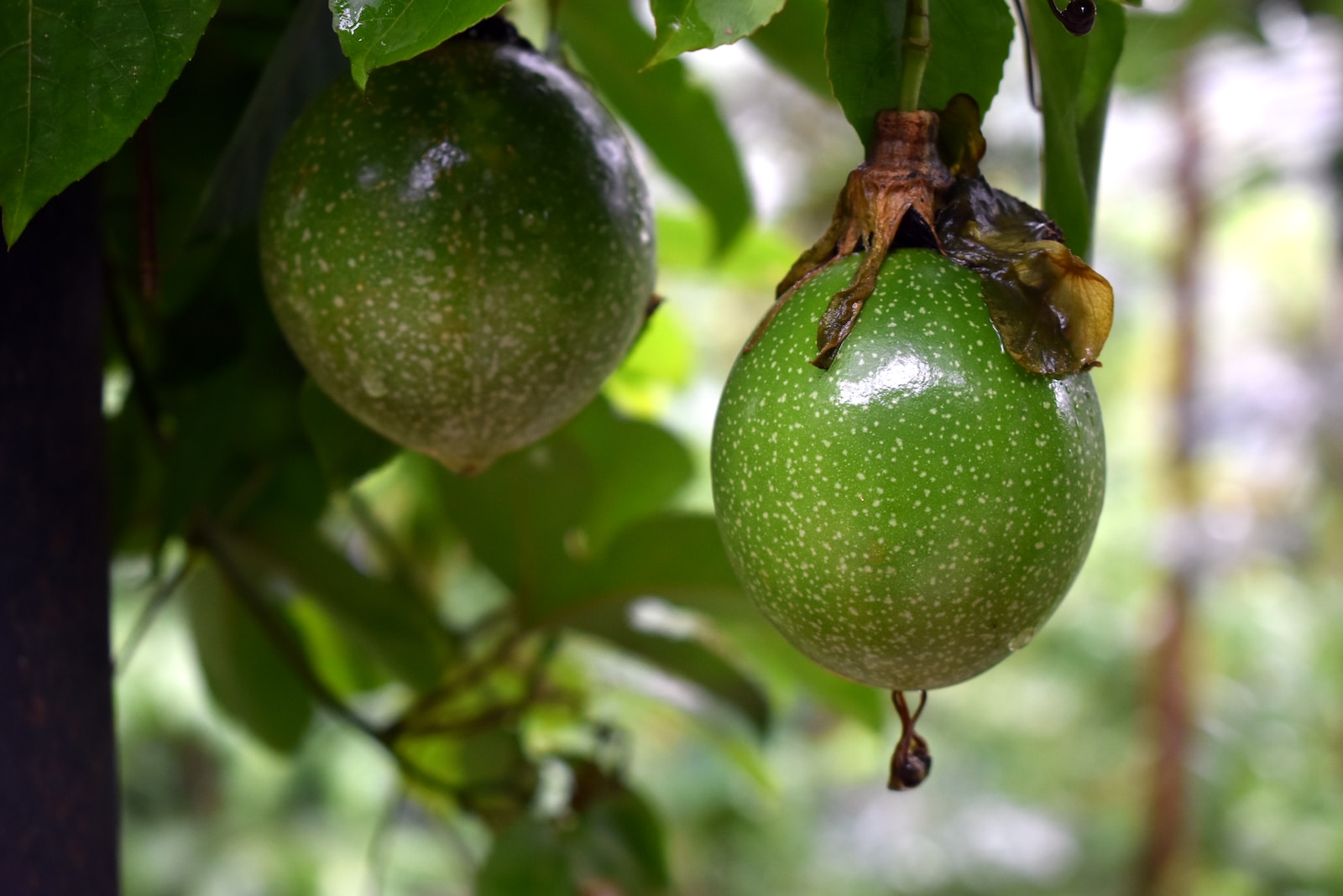
Passion Fruit Farming In Kenya: A Comprehensive Guide.
Kenya’s agricultural tapestry is rich and varied, and within this mosaic, passion fruit farming has carved a notable niche for itself. The journey of passion fruit in Kenya is as intriguing as the fruit itself, with a history rooted in its indigenous origins and its evolution into a commercially significant crop.
Passion fruit, scientifically known as Passiflora edulis , traces its origins to South America. The fruit’s name stems from the distinctive flower’s resemblance to elements of the Crucifixion story: the radial filaments representing the crown of thorns, the ten petals and sepals representing the ten faithful apostles, the ovary at the flower’s center representing the hammer used in the Crucifixion, and the three stigmas representing the three nails. This intricate history and symbolism traveled with the fruit as it spread to various parts of the world, including Africa.
In Kenya, passion fruit found a conducive environment and quickly became a backyard favorite before commercial cultivation took precedence. Its journey from being a cherished garden fruit to a cornerstone of Kenya’s agricultural export market is a testament to the fruit’s adaptability and the entrepreneurial spirit of Kenyan farmers.
Benefits of Passion Fruit Farming
Passion fruit farming offers numerous benefits, making it a lucrative and rewarding venture for farmers like yourself. When it comes to passion fruit cultivation techniques, you have a variety of options to choose from. You can grow passion fruit from seeds or seedlings, and there are different trellising methods you can use to support the vines. The vines require well-drained soil and regular watering, and they thrive in warm climates with plenty of sunlight.
One of the main benefits of passion fruit farming is the high demand for the fruit. Passion fruit is known for its unique flavor and versatility in culinary applications, making it a popular choice among consumers. This high demand translates into a profitable market for passion fruit farmers, ensuring a steady income.
Another benefit of passion fruit farming is the relatively low start-up and maintenance costs. Passion fruit vines are easy to grow, and with proper care and attention, they can yield a significant harvest. Additionally, passion fruit cultivation challenges are minimal compared to other crops. While pests and diseases can be an issue, proper pest management techniques and disease prevention measures can help mitigate these challenges.

Choosing the Right Passion Fruit Variety
When selecting the appropriate variety of passion fruit for your farm, consider factors such as climate, soil conditions, and market demand.
Passion fruit varieties vary in terms of their adaptability to different climates and soil types. Some varieties thrive in cooler regions, while others are more suited for hot and humid climates. It’s important to choose a variety that can withstand the specific climate conditions of your area.
Soil conditions also play a crucial role in passion fruit cultivation. Passion fruit plants prefer well-drained soil with a pH range of 6.0 to 7.5. Different varieties have different soil requirements, so it’s essential to assess the soil composition of your farm and select a variety that’s compatible with it.
Market demand is another crucial factor to consider when choosing the right passion fruit variety. It’s important to research and understand the demand and preference for different passion fruit varieties in your target market. This will help you make an informed decision and ensure that your farm produces fruits that have a high demand and can fetch a good price.
Essential Tools and Equipment for Passion Fruit Farming
Now let’s talk about the essential tools and equipment you’ll need for successful passion fruit farming.
First, you’ll need the right tools for planting, such as shovels, rakes, and pruning shears.
Next, you’ll need equipment for irrigation, like hoses, sprinklers, and drip systems, to ensure your plants receive enough water.
Lastly, you’ll need essentials for pest control, such as insecticides and traps, to protect your passion fruit plants from harmful pests.
Tools for Planting
To ensure efficient and successful planting of passion fruit, it’s essential to have the right tools and equipment at your disposal.
When it comes to planting techniques, there are a few key tools that you should have. First and foremost, you’ll need a digging tool, such as a shovel or a hoe, to prepare the soil and create holes for planting the seeds.
Additionally, a rake can be used to level the soil and remove any debris.
As for seed selection, having a seed tray or small pots is crucial for starting the seeds indoors before transplanting them to the field.
These tools will help you streamline the planting process and increase the chances of a bountiful passion fruit harvest.
Equipment for Irrigation
Having the right equipment for irrigation is crucial in ensuring the success and productivity of your passion fruit farm. Two commonly used irrigation methods in passion fruit farming are drip irrigation and sprinkler systems. Drip irrigation involves the slow and steady release of water directly to the plant’s roots, minimizing water wastage and maximizing efficiency. On the other hand, sprinkler systems distribute water through overhead sprinklers, providing a more even coverage across the farm. To help you make an informed decision, here is a comparison of the two irrigation methods:
Choose the irrigation method that suits your farm’s specific needs and resources, ensuring that your passion fruit plants receive the right amount of water for optimal growth and fruit production.
Essentials for Pest Control
To effectively control pests on your passion fruit farm, you’ll need essential tools and equipment. Here are three sub-lists of must-have items for pest control:
- Sprayers: Invest in handheld sprayers or backpack sprayers for applying pesticides or natural remedies to your passion fruit plants. These tools allow for precise application and efficient coverage, ensuring effective pest control.
- Traps: Integrated pest management (IPM) techniques often involve the use of traps to monitor and control pests. Consider using pheromone traps to attract and capture specific pests like fruit flies or yellow sticky traps to catch flying insects.
- Protective gear: When handling pesticides or natural remedies, it’s crucial to prioritize your safety. Equip yourself with gloves, goggles, and a mask to protect your skin, eyes, and respiratory system from potential harm.
Soil Preparation and Planting Techniques
Proper soil preparation and effective planting techniques are essential for your successful passion fruit farming venture. Before planting, it’s crucial to conduct soil testing to determine its pH level, nutrient content, and overall health. This will help you understand the soil’s suitability for passion fruit cultivation and guide you in making any necessary amendments.
When it comes to planting depth, it’s recommended to dig a hole that’s twice the size of the root ball. Gently remove the passion fruit seedlings from their containers and place them in the hole. Ensure that the graft union is above the ground level to prevent rootstock growth. Backfill the hole with soil, firmly pressing it around the plant’s base to eliminate air pockets.
To prevent waterlogging, make sure the soil is well-drained. Incorporate organic matter, such as compost or well-rotted manure, into the soil to improve its structure and fertility. Mulching around the plants will help retain moisture, suppress weeds, and regulate soil temperature.

Proper Care and Maintenance of Passion Fruit Plants
To ensure healthy growth of your passion fruit plants, it’s important to regularly prune them. This helps to remove any dead or diseased branches and encourages new growth.
Additionally, implementing effective pest control methods is crucial in protecting your plants from common pests and diseases.
Lastly, proper watering and fertilization are essential for providing the necessary nutrients and moisture for your passion fruit plants to thrive.
Pruning for Healthy Growth
Pruning is crucial for ensuring the healthy growth and maintenance of passion fruit plants. Proper pruning techniques and a consistent pruning schedule can greatly benefit your plants.
Here are some key points to keep in mind:
- Timing is essential: Prune your passion fruit plants during their dormant period, which is usually in late winter or early spring. This allows the plants to recover and grow vigorously during the growing season.
- Remove dead or diseased branches: Pruning helps eliminate any dead or diseased branches, preventing the spread of pests or diseases to other parts of the plant.
- Train the vines: Pruning allows you to train the vines to grow in a controlled manner, ensuring proper air circulation and sunlight exposure.
Pest Control Methods
To effectively protect your passion fruit plants from pests, it is important to implement appropriate pest control methods alongside proper care and maintenance. One effective approach is integrated pest management (IPM), which combines various strategies to minimize pest damage while reducing reliance on chemical pesticides.
IPM involves monitoring the plants regularly for signs of pests, using organic solutions such as neem oil or insecticidal soaps, and practicing cultural controls like maintaining proper plant spacing and providing adequate nutrition. Additionally, you can attract beneficial insects like ladybugs and lacewings to your garden, as they feed on pests. Implementing these methods not only helps control pests but also promotes a healthier and more sustainable environment for your passion fruit plants.
Watering and Fertilization
For optimal growth and fruit production, ensuring proper watering and fertilization is essential in caring for and maintaining your passion fruit plants. Here are some key points to consider:
- Watering : Passion fruit plants require regular and consistent watering, especially during dry periods. Using drip irrigation is highly recommended as it delivers water directly to the plant’s roots, reducing water wastage and ensuring efficient absorption.
- Fertilization : To promote healthy growth and abundant fruiting, using organic fertilizers is crucial. These fertilizers provide essential nutrients to the plants without the harmful effects of synthetic chemicals. Apply a balanced organic fertilizer every three months, focusing on nitrogen, phosphorus, and potassium levels.
- Timing : Watering should be done early in the morning or late in the evening to minimize evaporation and allow the plants to absorb water effectively. Fertilizers should be applied during the growing season and adjusted based on the plant’s needs and soil conditions.
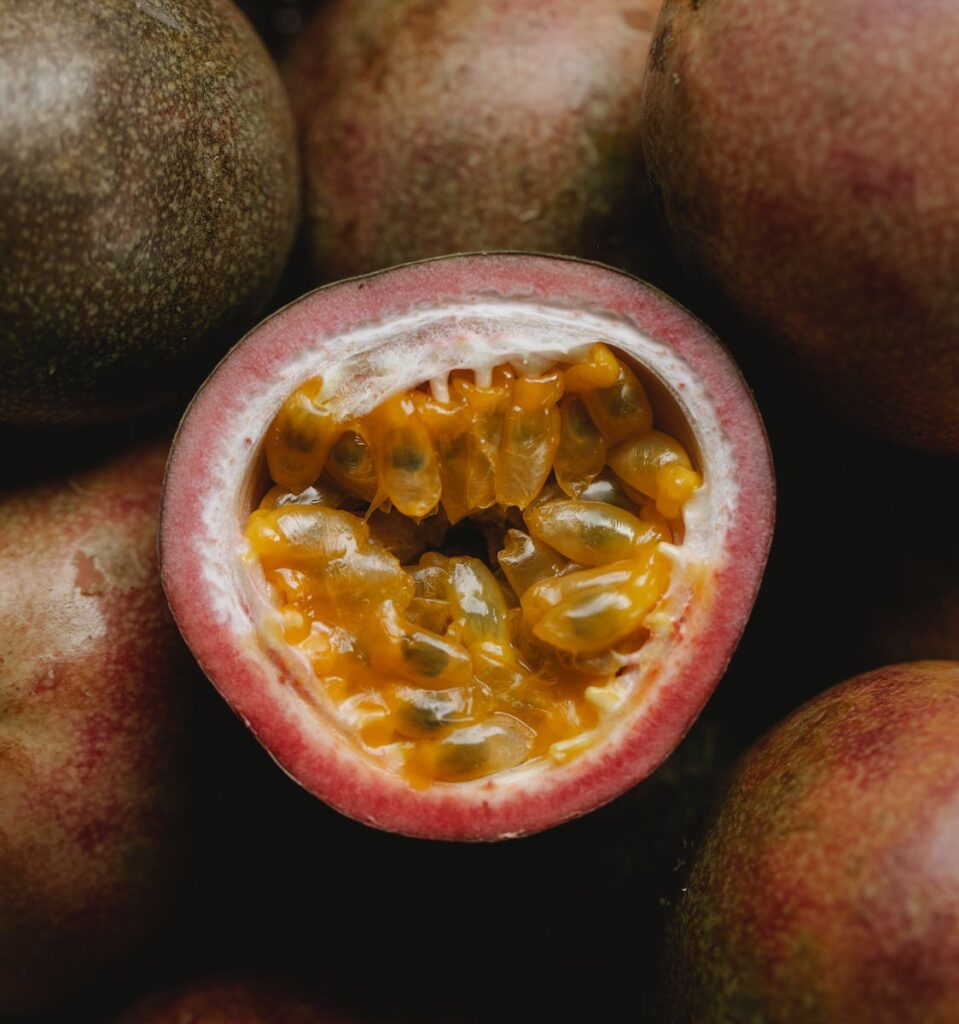
Pest and Disease Control in Passion Fruit Farming
Implementing effective pest and disease control measures is crucial for successful passion fruit farming. Integrated pest management (IPM) is a holistic approach that combines various strategies to minimize the use of chemical pesticides and promote natural remedies. By adopting IPM techniques, you can protect your passion fruit plants from pests and diseases while reducing environmental impact. Here are some key strategies you can implement:
In addition to these strategies, there are also natural remedies you can use to prevent and control pests and diseases. For example, neem oil, garlic spray, and soap solution can be effective against aphids and mites. Copper-based fungicides can help control fungal diseases like powdery mildew. Regular monitoring of your passion fruit plants is essential to detect and address any pest or disease issues early on. Remember, a healthy and well-maintained passion fruit farm is less susceptible to pest and disease outbreaks, leading to higher yields and profitability.
Effective Irrigation and Water Management
Maintaining effective irrigation and water management is essential for maximizing the growth and productivity of your passion fruit farm. By using drip irrigation techniques, you can ensure that water is delivered directly to the roots of the plants, minimizing wastage and promoting efficient water usage.
Some key benefits of drip irrigation include reduced water evaporation, prevention of weed growth, and the ability to deliver nutrients directly to the plants.
To further optimize your irrigation practices and conserve water, consider implementing the following strategies:
- Mulching: Apply a layer of organic mulch around the base of the passion fruit plants. This helps to retain moisture in the soil, reduces evaporation, and suppresses weed growth.
- Monitoring soil moisture: Regularly check the moisture levels in the soil to determine when irrigation is necessary. This can be done using a soil moisture probe or by observing the appearance of the plants.
- Rainwater harvesting: Collect rainwater using storage tanks or reservoirs. This stored water can then be used for irrigation during dry periods, reducing reliance on other water sources.
Fruit Harvesting and Post-Harvest Handling
After ensuring effective irrigation and water management, the next crucial step in passion fruit farming is mastering the art of fruit harvesting and post-harvest handling.
When it comes to fruit harvesting, it’s essential to pick the fruits at the right stage of ripeness. Passion fruits should be harvested when they’ve turned fully colored and are slightly wrinkled. This indicates that they’re ripe and ready to be picked. Gently twist the fruit off the vine, making sure not to damage the stems or the fruits themselves.
Once the fruits have been harvested, it’s important to handle them with care to ensure optimal quality and shelf life. Start by sorting the fruits to remove any damaged or diseased ones. Then, wash the fruits in clean water to remove any dirt or debris. After washing, dry the fruits thoroughly before storing or processing them.
For fruit storage, passion fruits should be kept in a cool and well-ventilated area. They can be stored in ventilated crates or baskets, ensuring that there’s enough airflow around the fruits. Avoid stacking the fruits on top of each other, as this can cause bruising and spoilage. Proper storage conditions can help extend the shelf life of passion fruits.
When it comes to fruit processing, passion fruits can be used to make a variety of products such as juice, jam, or concentrate. The fruits can be processed by extracting the pulp and separating it from the seeds. The pulp can then be used to make different products, while the seeds can be discarded or used for other purposes.
Marketing and Selling Passion Fruit Products
To successfully market and sell passion fruit products, it’s important to understand the target market and develop effective marketing strategies. Here are three key strategies to consider:
- Identify your target market : Determine who your ideal customers are and tailor your marketing efforts towards them. Consider factors such as age, location, and preferences. For example, if your target market consists of health-conscious individuals, highlight the nutritional benefits of passion fruit in your marketing materials.
- Create a strong brand : Develop a unique and memorable brand that resonates with your target market. Use eye-catching packaging and design, and create a compelling brand story that connects with consumers. This will help differentiate your passion fruit products from competitors and attract customers.
- Utilize various marketing channels : Increase the visibility of your passion fruit products by leveraging multiple marketing channels. This can include online platforms such as social media and e-commerce websites, as well as traditional methods like attending farmers’ markets or partnering with local retailers. By diversifying your marketing efforts, you can reach a wider audience and increase sales.
In conclusion, passion fruit farming offers numerous benefits, including a high yield and profitability.
Choosing the right variety, proper soil preparation, and effective pest and disease control are essential for successful farming.
Additionally, using the right tools and equipment, practicing proper care and maintenance, and implementing effective irrigation and water management techniques are crucial for optimal plant growth and fruit production.
By following these practices and focusing on post-harvest handling and marketing, passion fruit farmers can maximize their profits in this lucrative industry.
Similar Posts

Grow Bags: A Comprehensive Guide to Portable Gardening in Kenya
Growing plants is a great way to beautify your home, but it isn’t always easy. Traditional pots can be heavy,…
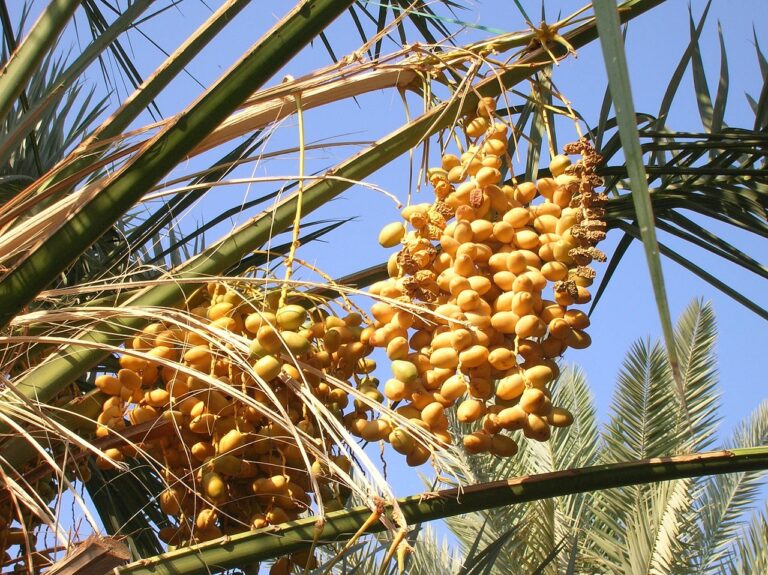
Date Cultivation in Kenya: Exploring Golden Harvest Potential.
Before we dive into the potential for date cultivation in Kenya, let’s take a closer look at this sweet fruit…

Kenya’s Agri-Profit: Maize, Avocado, or Tomato Farming?
Agriculture is the backbone of Kenya’s economy, providing employment for over 70% of the population and contributing to more than…
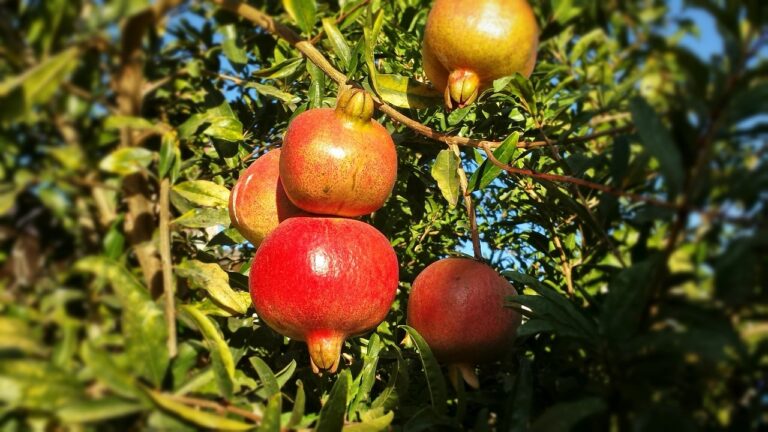
Can Pomegranates Thrive in Kenya’s Climate? Unlocking Potential.
The pomegranate fruit is a true wonder. The fruit with its hard, leathery rind and red, juicy interior is packed…
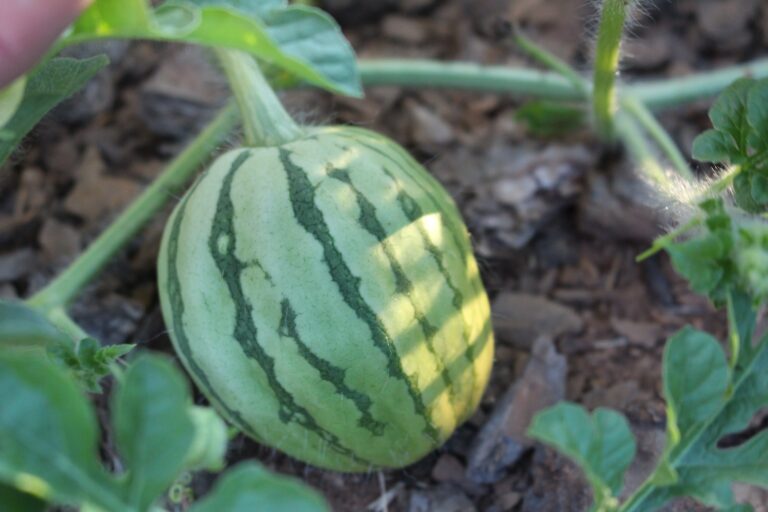
Watermelon Farming in Kenya Business Plan
Watermelon stands as one of Kenya’s most sought-after fruits, boasting a robust market demand and promising returns. Nevertheless, delving into…

Pixie Mandarin farming in Kenya
The pixie orange is from the Mandarin or Tangerine family of citrus fruits. Pixie oranges are orange in color and…
Leave a Reply Cancel reply
Your email address will not be published. Required fields are marked *
Save my name, email, and website in this browser for the next time I comment.

- Farmer's Resources
- Rich Farming Concept
- Our Products
Dragon Fruit Farming In Kenya: A Comprehensive Step by Step Guide For Growing Dragon Fruit
Dragon fruit farming in Kenya is no longer a foreign concept as it sounded 2 years ago. Today, we have a few hundred small-scale dragon fruit farmers in Kenya and tens of relatively large-scale farmers. The fruit, also called pitahaya or pitaya, is also gaining popularity in Kenya, driving the demand higher, thus offering its local farmers a higher opportunity for making profits.
While information about dragon fruit farming is still scanty in Kenya, Richfarm is always visiting farmers to educate them on the best ways of producing the fruit. We have also been holding dragon fruit farming seminars at our Embu farm. We always want you to start off your project from an informed position. That is why we have also written this online guide on how to grow dragon fruits in Kenya.
Best conditions for dragon fruit farming in Kenya
Being in the family of cactus, this fruit is adapted to grow even in arid or semi-arid conditions. It does not require a lot of water. It is also not selective on the type of soils meaning you can grow it on sandy, loamy or clay soils. However, for your plants to have good vegetative growth and a high yield, the soils must have high organic matter and be well drained. You should also ensure that you give them just a little water during the very dry seasons.
Can dragon fruits grow in the Kenyan highlands? Yes, while this crop has the ability to grow even in hot and dry areas, it doesn't mean it can't grow in cooler areas with a lot of rainfall. All you need to do is ensure that the soils are well-drained to avoid soaking the rooting area.
The support structures
Dragon fruit plants are vines; they cannot grow upright on their own. You must make them a support structure over which to climb. A post with a wide structure at the top will be sufficient to support 2 to 4 vines. The plants will climb up to the top and then spread forming something like an umbrella. This ensures that the plants receive enough sunlight, which is very important for their growth and production. If your support structures are arranged in rows, you should ensure that the rows take an East-West alignment. This helps the plants to receive sunshine throughout the day.
Dragon fruit spacing?
The recommended spacing for dragon fruit is 2m between the lines and 2m from pole to pole within the line. with this spacing, you will plant 2,000 dragon fruit plants in an acre if you establish 2 plants per pole. that is the number we actually recommend. however, we have seen other successful spacing in practice: the commercial farm in naivasha has a spacing of 2m between the lines and 1m from pole to pole and 2 plants per pole. in other farms, they plant 4 plants per pole and have had successful yield. dragon fruit farming in kenya: planting space of 2m by 1m, how long do dragon fruits take to mature.
It will take 1 to one and a half years for a dragon fruit vine to produce the first fruit if you plant it from the cutting of a mature vine. A vine propagated from a seed will take more than 6 years to mature hence the best method to propagate dragon fruits is through cuttings. The lifespan of dragon fruit plants is over 40 years.
A dragon fruit bud takes 13 days to develop into a flower from a node. This flower opens up for pollination on the night of the 13 th day – just before the 14 th day. This is the only chance that the flower has to get pollinated. If pollination doesn’t happen then, the flower will not grow into a fruit and will simply fall off the plant. If it is successfully pollinated, it will develop into a fruit that will be ripe and ready for harvesting after 38 days since pollination. That means it only takes 52 days from the day a fruit bud emerges to have a yummy fruit ready to be eaten.
When the fruits are growing, they are usually green in colour. They start turning into red colour when they mature and the ripening process starts. The ripening process takes only 3 days. You must harvest dragon fruits only after they are completely ripe. This is because, unlike other fruits, Pitaya does not continue to ripen after being harvested.
Where is the market for dragon fruits in Kenya?
Dragon fruits are in very high demand in Kenya at the moment while the supply remains low. That is why it is one of the most expensive fruits on the Kenyan shelves. It will cost you in the range of Ksh800 to 1,500 to buy a kilo of Pitaya.
Currently, the market for dragon fruits is open and ready for farmers to sell through the many supermarket chains in the country, the open market, fruit aggregators and, of course, the ever-present online market. The supermarkets that stock these fruits in our country actually import it from other countries. This presents a great opportunity for farmers who would want to invest in dragon fruit farming in Kenya. At this point, we are not even talking about the export market for Kenyan dragon fruits since the supply is far from getting to exportable levels.
To get a deeper understanding of the dragon fruit market in Kenya, please read the following articles we wrote for you:
- 3 Reasons Why You Should Invest In Dragon Fruit Farming In Kenya
- Why Dragon Fruit Is Set To Be The Next Big Thing In Kenya’s Farming Business
China is the largest consumer of dragon fruits and it imports a bulk of the produce from Vietnam. China is an open market to which Kenya is exporting avocado. With the necessary volumes, dragon fruit farmers in Kenya can take advantage of the Chinese and larger international market.
The shelf life of dragon fruit
You can keep dragon fruits for up to 18 days after harvesting without refrigeration. Under proper refrigeration, the fruit will remain fresh even for 3 months. This fruit is not perishable since it stops ripening immediately it is cut off from the mother plant. Also, the fruit does not oxidize after being cut. That means you do not have to consume the entire fruit once you have cut it. You can keep a slice under refrigeration and it will look and taste as fresh as when you first cut it.
Pest and diseases
Dragon fruit farming in Kenya is the only agribusiness venture I know that you can do purely organically and find it easy to do so. The plants and fruits are not easily attacked by pests and diseases. The greatest threat to dragon fruit farming is the fruit fly. Luckily, fruit flies can be controlled using biological methods. The plant is also very tolerant to diseases. Only mild cases of fungal infections have been reported, and even as such, they do not pose any danger to the plant or fruits.
What you need for a profitable dragon fruit farming venture in Kenya
- Space : A small space, even 1/8 of an acre is enough to start dragon fruit farming in Kenya at the moment. Being a very high value crop, a few dragon fruit plants are enough to make you realize economic gain. You do not need typically fertile soils as the nutritional needs of this plant are not so high. You can actually plant it even on the edges of the farm.
- Support structures : Posts of about 5 feet (150cm) in height are good enough. These can either be wooded or concrete. Concrete ones are best for longevity. Soften the soil around the base of the post and hip it a little especially if you are planting on clay soils that are not so well drained. Mix the soil with a lot of manure to give it sufficient amounts of organic matter. You only need soils that are about 2 feet (60cm) deep since the plants are shallow rooters.
- High-quality seedlings : Plant dragon fruit seedlings developed from mature cuttings only. Get mature, rooted dragon fruit cuttings from Richfarm Kenya by simply calling or texting 0724698357. When planting, burry only the rooting section of the cutting and water just enough to make the soil moist. Tie the cuttings to the post to help them grow upright before they produce aerial roots and be able to climb by themselves. By the way, do not miss our BIG PRICE OFFER on seedlings: Check this out here: Dragon Fruit Seedlings For Sale: The Best Prices In Kenya

Other important commercial farming ventures by Richfarm Kenya include:
1. Pixie Orange farming
2.Grapes farming in Kenya
3. Mango farming for export
26 comments :
Hi do you offer services such as have a person on the ground to take the farmer through the process and of course at a fee?
Does one need to dig a hole of 2feet deep or just plant after heaping some soils at base of the poles ?
Hello this is Peninah from Mombasa is it possible to get a good market to sell dragon fruits. if i can plant them in my land at Chuka, Meru. After of course coming over for seedlings from you.
I'm interested with this farming. Do you admit students to go through their attachment within the farm.
Interested,.how much per seedlings
How can i get seedlings in embu county
I would like to visit farm if I'm given an opportunity since I'm determined to venture into this farming.
How much is a seedling?
What's your contact number?
How much per seeding
Cutting brother not seedlings
How much per seedling?
Interested about this farming.
Am interested in starting selling the dragon fruit
Contact us for help. 0724698357 / 0723213602
We will be very glad to help you get started in it. Just call +254724698357 / +254723213602 to get any help you need.
Dragon fruit seedlings cost ksh500. Currently, you pay only 400 each if you buy more than 10.
Dragon fruit seedlings cost ksh500. Currently, you pay only 400 each if you buy more than 10. Call +254724698357 / +254723213602 to order yours.
Hello I would like to grow it in Kitale town? will it thrive here?
Hi do you offer support in how to plant on site?
Hello can it grow within kakamega
How can I get the seedlings and maybe more knowledge on the fruit farming
IThis can be a good business venture.
Can you export to Dar es salaamTanzania
Interested in Machakos
This must be the most expensive fruit in Kenya.
Post a Comment
Farming With Precision!

[Pdf Sample] Fruit And Vegetable Business Plan Docx
Are you considering starting a fruit and vegetable business? Having a well-thought-out business plan is crucial for your success. In this article, we will provide you with a detailed guide on creating a fruit and vegetable business plan in PDF format.
From understanding the market to developing marketing strategies, we will cover everything you need to know to ensure your business flourishes. So let’s dive in and explore the essential components of a fruit and vegetable business plan.
[Pdf Sample] Fruit And Vegetable Business Plan Proposal Docx
Table of Contents
A well-crafted business plan is crucial for the success of any fruit and vegetable business. It serves as a roadmap, outlining the vision, goals, and strategies necessary to establish and grow the business.
Read Also: [Pdf Sample] Crop Farming Business Plan Docx
This comprehensive business plan aims to provide Agrolearners.com with a detailed framework for entering the fruit and vegetable industry, addressing key areas such as market analysis, competitive positioning, marketing strategies, operations, finances, and implementation.
Executive Summary: A Snapshot of Your Business
Agrolearners.com aims to establish a fruit and vegetable business that connects farmers with consumers, providing high-quality, locally sourced produce through an online platform. By leveraging technology and emphasizing sustainable farming practices , Agrolearners.com aims to bridge the gap between farmers and consumers, promoting healthier lifestyles and supporting local agriculture.
This business plan outlines the steps necessary to achieve this vision, positioning Agrolearners.com as a leading provider of fresh produce in the market.
Read Also: [Pdf Sample] Poultry Farming Business Plan In Kenya Docx
Business Description: Defining Your Fruit and Vegetable Business
Agrolearners.com is an online platform that acts as an intermediary between farmers and consumers in the fruit and vegetable industry. Our primary objective is to provide consumers with access to a wide range of fresh, locally sourced produce while empowering farmers by helping them reach a broader customer base.
By establishing a user-friendly website, implementing efficient logistics, and ensuring the quality and traceability of our products, we aim to differentiate ourselves in the market and become the go-to source for consumers seeking premium fruits and vegetables.
Market Analysis: Understanding the Industry and Target Market
The fruit and vegetable industry is experiencing significant growth due to increasing consumer demand for fresh and healthy food. With rising awareness of the importance of nutrition and sustainability, there is a growing market for locally sourced produce.
Read Also: [Pdf Sample] Palm Oil Farming & Production Business Plan Docx
Agrolearners.com will target health-conscious consumers who prioritize freshness, taste, and the support of local farmers. Through market research and analysis, we will identify consumer preferences, trends, and the competitive landscape to refine our offerings and marketing strategies.
Products and Services: What You Will Offer
Agrolearners.com will offer a wide variety of fruits and vegetables sourced directly from local farms . By collaborating with farmers who follow sustainable farming practices and prioritize quality, we will ensure that our customers receive produce that meets the highest standards.
We will establish relationships with multiple suppliers to ensure a consistent and diverse product range throughout the year. Additionally, Agrolearners.com will provide value-added services such as recipe recommendations, nutritional information, and convenient delivery options to enhance the customer experience.
Read Also: [Pdf Sample] Poultry Farming Business Plan In South Africa Docx
Competitive Analysis: Assessing Your Competitors
To position Agrolearners.com effectively, a comprehensive competitive analysis is crucial. We will identify existing players in the fruit and vegetable market, evaluate their strengths and weaknesses, and determine their market share and pricing strategies.
By leveraging our unique value proposition, including a user-friendly website, partnerships with local farmers, and an emphasis on sustainability, we will differentiate ourselves from competitors. Agrolearners.com will continuously monitor the market to stay ahead of emerging trends and adjust our strategies accordingly.
Marketing Strategies: Promoting Your Fruit and Vegetable Business
Agrolearners.com will implement a multi-faceted marketing strategy to build brand awareness, attract customers, and drive sales. Our strategies will include online marketing through social media platforms, search engine optimization (SEO), and content marketing.
We will also collaborate with health and wellness influencers to promote our brand and engage in targeted advertising campaigns. Moreover, Agrolearners.com will actively participate in local community events, sponsor farmer markets, and establish partnerships with local restaurants and food-related organizations.
Read Also: [Pdf Sample] Business Plan For Goat Farming In South Africa Docx
Operations and Management: Organizing Your Business
Agrolearners.com will require efficient and streamlined operations to ensure the seamless flow of produce from farms to consumers. This includes developing a user-friendly website for online ordering, implementing an effective inventory management system, and establishing reliable logistics and delivery networks.
We will invest in appropriate technology infrastructure, hire experienced personnel with expertise in agriculture, logistics, and customer service, and provide ongoing training and development to our team members to ensure operational excellence.
Financial Plan: Budgeting and Forecasting
The financial plan for Agrolearners.com will outline the projected revenue, expenses, and profitability over a specified timeframe. This will include detailed cost analysis for sourcing produce, website development, marketing, operations, and staffing.
Read Also: [Pdf Sample] Business Plan For Snail Farming Docx
We will develop pricing strategies that balance affordability for customers while ensuring profitability. Additionally, we will explore funding options, including equity investments, loans, and grants, to secure the necessary capital for business development and expansion.
Implementation Plan: Putting Your Plan into Action
The implementation plan will outline the specific steps and timelines required to launch Agrolearners.com successfully. This includes securing necessary licenses and permits, finalizing partnerships with farmers, developing the website, establishing marketing campaigns, and setting up operational processes. We will create a project management framework to monitor progress, allocate resources effectively, and ensure timely execution of tasks.
Evaluation and Review: Measuring Success
Agrolearners.com will regularly evaluate key performance indicators (KPIs) to measure the success of the business. These KPIs may include customer acquisition and retention rates, revenue growth, customer satisfaction, and operational efficiency.
We will also gather feedback from customers and farmers to identify areas for improvement and make informed decisions to optimize our business strategies.
Here is the Download Link to Fruit And Vegetable Business Plan Sample By Agrolearner.com
Business Model for Agrolearners.com’s Fruit and Vegetable Business
Value proposition:.
Agrolearners.com offers consumers convenient access to a wide variety of high-quality, locally sourced fruits and vegetables. By connecting farmers directly with customers, we provide fresh produce that promotes healthier lifestyles while supporting local agriculture . Our value proposition lies in offering convenience, quality, sustainability, and a seamless customer experience.
Key Activities:
- Partnering with local farmers and suppliers to source fresh and sustainable fruits and vegetables.
- Developing and maintaining a user-friendly online platform for seamless ordering and delivery.
- Implementing efficient logistics and supply chain management to ensure timely delivery.
- Providing value-added services such as recipe recommendations, nutritional information, and personalized customer support.
Customer Segments:
Agrolearners.com targets health-conscious consumers who prioritize freshness, taste, and supporting local farmers. We also cater to customers seeking convenience and a hassle-free shopping experience for their fruit and vegetable needs. Our primary customer segments include individuals, families, health enthusiasts, and organizations such as restaurants, cafes, and community groups.
Customer Relationships:
We aim to establish strong and lasting relationships with our customers by: a. Offering personalized and responsive customer support through multiple channels (phone, email, chat). b. Engaging with customers through social media, newsletters, and informative content. c. Providing a seamless ordering and delivery experience that exceeds customer expectations. d. Actively seeking and valuing customer feedback to continuously improve our services.
Revenue Streams:
Agrolearners.com generates revenue through the following streams:
- Product sales: Revenue generated from the direct sale of fruits and vegetables through the online platform.
- Value-added services: Revenue generated from additional services such as recipe recommendations and nutritional information.
- Delivery charges: Fees associated with delivery services to customers.
- Partnerships: Collaborating with local restaurants, cafes, and organizations to supply fresh produce.
Key Resources:
- Online platform: A robust and user-friendly website for product display, ordering, and customer management.
- Supplier network: Strong partnerships with local farmers and suppliers to ensure a consistent supply of fresh produce.
- Technology infrastructure: Necessary hardware and software for efficient operations, inventory management, and logistics. d. Skilled team: Experienced professionals in agriculture, logistics, customer service, and marketing.
Key Partnerships:
- Farmers and suppliers: Collaborating with local farmers and suppliers to source fresh and sustainable produce.
- Delivery partners: Establishing partnerships with reliable logistics companies for timely and efficient delivery.
- Restaurants and cafes: Forming partnerships with local eateries to supply fresh produce for their menu requirements. d. Community organizations: Collaborating with community groups and organizations to promote healthy eating and local agriculture.
- Online platform: The primary channel for customers to browse products, place orders, and access value-added services.
- Social media and digital marketing: Utilizing platforms like Facebook, Instagram, and email newsletters to engage with customers, share content, and promote offers.
- Physical presence: Participating in local farmers’ markets, community events, and pop-up stores to establish a physical connection with customers.
Cost Structure:
Agrolearners.com’s cost structure includes:
- Procurement costs: Expenses associated with sourcing fruits and vegetables from farmers and suppliers.
- Technology infrastructure: Costs related to website development, hosting, maintenance, and security.
- Operations: Expenses for inventory management, packaging materials, quality control, and order fulfillment.
- Marketing and advertising: Investments in digital marketing, social media campaigns, and promotional activities.
- Staffing: Salaries and wages for employees involved in operations, customer service, and marketing.
Key Metrics:
To evaluate the success of the business model, Agrolearners.com will track key metrics such as:
- Customer acquisition and retention rates.
- Average order value and purchase frequency.
- Customer satisfaction and feedback ratings.
- Revenue growth and profitability.
- Return on investment for marketing and advertising efforts.
- Delivery efficiency and customer service response time.
By aligning its activities, resources, and revenue streams with customer needs, Agrolearners.com’s business model aims to create value for both consumers and local farmers while establishing a sustainable and profitable fruit and vegetable business.
This detailed business plan provides Agrolearners.com with a roadmap for entering and excelling in the fruit and vegetable industry. By prioritizing quality, sustainability, and customer satisfaction, Agrolearners.com aims to establish itself as a trusted brand in the market, connecting farmers with health-conscious consumers.
With careful execution, ongoing evaluation, and adaptation to market trends, Agrolearners.com is confident in the success of its vision to promote healthier lifestyles and support local agriculture.
Share this:
Author: Adewebs
You may also like:.

[Pdf Sample] Business Plan For Pig Farming Docx
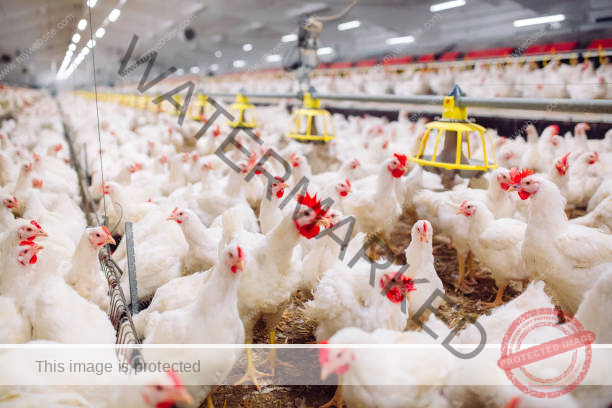
Starting a Poultry Farm with Limited Resources in Ghana: A Comprehensive Guide for New Farmers
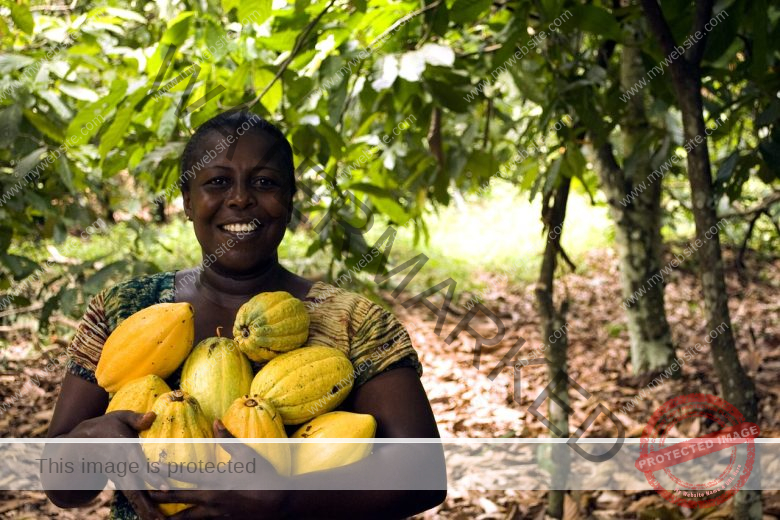
How To Register Agribusiness Company In Kenya (See Full Guide)

Starting a Poultry Farm with Limited Resources in Nigeria: Guide for New Farmers
2 replies to “ [pdf sample] fruit and vegetable business plan docx ”.
Dear Adeweb’s, Having read about the (PDF Sample) Fruit & vegetables essential components of the business plan. We are interested to know more information, as we are considering to start a fruit and vegetables business.
Thank you and looking forward to hearing from you.
Vivienne and Sebastian
We’re glad you liked what you read.
Leave a Reply Cancel reply
Your email address will not be published. Required fields are marked *
Save my name, email, and website in this browser for the next time I comment.
Notify me of follow-up comments by email.
Notify me of new posts by email.

Don't bother with copy and paste.
Get this complete sample business plan as a free text document.
Agriculture Fruit Farm Business Plan
Start your own agriculture fruit farm business plan
Farmers Group
Executive summary executive summary is a brief introduction to your business plan. it describes your business, the problem that it solves, your target market, and financial highlights.">, problem & solution, problem worth solving.
People want and need vegetables and related food with good taste and high nutritional quality. Our national diet is a disgrace. We have a huge problem of obesity.
Our Solution
We use present and future agricultural technology to produce organic, tasty, and nutritional vegetables. We start with an existing farm that has custom-innovated equipment. To that we add horticultural technology in the production of strawberries will allow double utilization of the climate controlled portion of the overhead.
Target Market
Competition, current alternatives.
Alabama is one of the premier farming areas of the eastern United States. This creates an intensely competitive environment with a large number of industry participants. Since almost all of the produce is considered to be commodities, and large scale buyers are more consolidated than the farmers themselves, overall margins are small and rivalries for wholesaler contracts are strong. Competitive threats come from three main segments:
- Imported vegetables of lower quality.>
- Mississippi pound raised vegetables.
- Alabama vegetable producers.
Direct competition in the individual buyers market segment comes from three farms in the immediate area including the Anniston farm, Organics-To-You farm, and the Terrance Livingston vegetable farm. Each of these competitors has produce stands as well as selling to local farmers’ markets. However, with the exception of Organics-To-You Farm, none of the others focus on a niche market and depend heavily on federal subsidies.
Our Advantages
The Farmers Group strategy is to profitably and efficiently utilize present and future agricultural technology in the production of vegetables. The company, by acquiring an existing profitable vegetable farm with all the necessary custom-innovated equipment, will gain a significant industry advantage. Additional application and utilization of horticultural technology in the production of strawberries will allow double utilization of the climate controled portion of the overhead. Farmers Group hopes to consolidate considerable goodwill already created by exercising the option of not adding another high-production facility to the present supply-demand scenario.
The company’s goals in the first year are to:
- Prepare the future site.
- Relocate and expand Green Acres vegetable system and get it operational.
- Integrate greens culture into the system.
- Have the composting system in full production by early spring of the second year.
The company’s long-term plan is to phase out whichever products are least lucrative and replace them with products that are practical and cost efficient.
Marketing & Sales
Marketing plan.
Farmers Group will initially market and supply its products to target customers. The company is further exploring marketing opportunities on the Internet. To this extent, the company would like to set up a website to market its products.
The company will utilize aggressive advertising strategies to further market its products. These strategies include the promotion of products through the sponsoring of spots on cooking shows and exhibitions, and also engaging prominent chefs to help promote this fledgling industry.
At Farmers Group, the sales process is primarily the same for vegetables as it is for composting products, in that both products will be mainly sold through wholesale marketing. As in the past, live shipments will be delivered by contract carriers in special oxygenated tanks carrying 8,000 vegetables or more, and will be continued as demanded. Farmers Group’s bagged manure products will be delivered and unloaded in sizable wholesale quantities by the pallet.
Smaller, more local orders will significantly increase the overall sales when the 300-450 live vegetables carrying tank system is put into service late in 2000 or early in 2001.
The company’s average sales cycle from first contact to closing of the sale is approximately 3 to 12 days for vegetable products. Farmers Group plans to shorten this cycle. Furthermore, the company estimates that from first contact to sale conclusion, the cycle for fresh strawberries will run 3 days or less. Composted products sale cycle should run from 3 to 12 days.
Locations & Facilities
The farm is located in Calhoun county approximately 4.5 miles outside of Jasper.
The operation will utilize:
- One large greenhouse, enclosing the vegetable area.
- Horticultural greenhouse.
- Filters, water treatment devices.
- Backwash facilities.
- Outdoor vegetable facilities.
- Business office building.
An additional portion of the operation will be the manure composting facility. Local and regional dairy operations have trouble with manure accumulations, and the company hopes to enter into contracts in removing the manure. Farmers Group will then turn this into a saleable product. The company plans to supply the region’s nursery outlets with a top-quality, premium garden and soil amendment product for area horticulture.
While at Mobile Farmers Vegetable Farm James Jackson, steadily used and experimented with compost and fertilized with manure of different kinds. The most important things with manure usage is to eliminate the viable weed seed drawback by thoroughly composting the manure, to add enough cellulose on product to bring it to the proper ratio and to bring its water content to proper levels. A properly composted manure product has no seeds that will germinate and proliferate in it. Additionally, a properly composted manure product has something a chemically formulated synthetic fertilizer does not have: enzymes. Enzymes are critical for producing a truly nutritious and superior flavored product. Research has shown that the superior flavor of a fruit or vegetable is closely related to vitamin content and folic acid content in green vegetables.
The company is currently seeking contact with Alabama universities in order to learn about and acquire new hybrids of strawberries and vegetables that are hardier and grow faster in our local microclimates. These and other available species and systems will be constantly tracked.
In addition to the above, the company is seeking contacts at Universities in Italy and Germany that are involved in greens, and will continue the quest for the best flavored, large, and firm fall and winter strawberries.
Currently, Farmers Group is conducting research to test certain clay-sand-manure mixture levels to obtain better, cheaper bedding and agronomic soil mixtures that are more effective than the standard used in the industry in Alabama (Pine bark mulch-composted).
Equipment & Tools
The state-of-the-art vegetable equipment starting up in the new location utilizes revolutionary harvest designs that:
- Allow faster, longer growth
- Cut the harvest labor by over 80%
- Decrease loss in weight gain, and
- Eliminate weight loss from shock.
Farmers Group’s first line of production will be the green vegetable and red vegetable. During the summer months Farmers Group will be growing carrots, romaine lettuce, leeks, red onions, summer squash, and spinach. In the fall, production will center on pumpkins, winter squash, globe beets and winter greens. With the growth of the popular organic food niche, and the federal government’s new organic labeling policy, Farmers Group will focus its produce on the intermediate organic label. This means that approximately 70% of the food production process will be organic and all foods produced by Farmers Group will be eligible for the "contains organic ingredients" label. The company’s farm will have a capacity sufficient to produce in excess of 200,000 lbs. of vegetables per year.
Strawberries
Brought to you by
Create a professional business plan
Using ai and step-by-step instructions.
Secure funding
Validate ideas
Build a strategy
Farmers Group’s strategy is a combination of the two technologies during the cool winter months which will allow the utilization of normally wasted space in the greenhouses for the high price winter greens production. This will allow double cultivation of the greenhouses with almost no additional heating necessary in this climate.
Future Products
In the meantime, the company would like to explore the possibilities of crayfish production. Farmers Group believes this to be a high revenue venture with retail prices running in excess of $15.00 per pound in most places. The company also believes that if crayfish production is successful then it could become the number one endeavor of Farmers Group.
Currently there is a defunct fish farming production facility with all the necessary capital equipment approximately two miles from the current farm. Purchase of this facility would allow Farmers Group to begin production and to capitalize on this higher margin product. What makes this most attractive is the two ventures have significant joint cost potential, allowing for a reduction in marginal costs for all products and creation of real economies of scale that would provide Farmers Group with a competitive advantage.
Milestones & Metrics
Milestones table, key metrics.
- Sales and cost of sales
- Greenhouse output by crop
- overall output per crop
- Fertilizer usage
- Water usage
Ownership & Structure
Farmers Group’s management team is led by Mr. James Jackson, Business Manager, and the current manager of Mobile Farmers Vegetable Farm, who has extensive knowledge of the industry and has been tracking vegetable trends for 30 years.
The company’s management philosophy is based on responsibility and mutual respect. Farmers Group has an environment and structure that encourages productivity and respect for customers and fellow employees.
Management Team
Management will be responsible for supervising and participating in the daily operations of the facility. Management consists of:
- James Jackson, Business Manager, Full Time
- Terry Howard, Executive Director, Full Time
- Kevin Perry, Management Trainee, 3/4 Time
- Victor Green, Management Trainee, 1/4 Time
Daily Maintenance
This group will consist of the following:
- Henry Jones, Logistical Engineer, Full Time
- Colin Henry, Heavy Equipment, Full Time
- Michael Owen, Welder, 1/2 Time
Personnel Table
Financial plan investor-ready personnel plan .">, key assumptions.
Key Assumptions
Nature and Limitation of Projections
This financial projection is based on sales volume at the levels described in the sales forecast section and presents, to the best of management’s knowledge, the company’s expected assets, liabilities, capital, and revenues and expenses. The projections reflect management’s judgement of the expected conditions and its expected course of action given the hypothetical assumptions.
Nature of Operations
The company is in the business of vegetable farming, greens cultivation, and composting. The company expects to be operating in 2000.
The company’s revenue is derived primarily from the sale of vegetables, strawberries, and bagged composted manure products.
The company’s expenses are primarily those of salaries, utilities, and insurance costs. Other expenses are based on management’s estimates and industry averages.
However, our initial projections indicate profitability well beyond realistic expectations. We’ve added a substantial "other expense" category, especially as we get on our feet in the second half of year one, to allow for realistic expenses … even if we can’t categorize them exactly. Even with these "other expenses" we are still unusually profitable, but we believe that’s because of our innovative technology.
Revenue by Month
Expenses by month, net profit (or loss) by year, use of funds.
The company is seeking to raise of $830,000 for the purpose of financing the acquisition of the Green Acres Vegetable Farm and Mobile Farmers Vegetable Farm, facilities modifications, equipment, and funding operating expenses. Another $1,000,000 will be invested in the company by its four co-owners. The total is $1,830,000. The following is a breakdown of how the funds will be used:
Acquisition:
Property $1,300,000
Equipment System $400,000
Sub-total $1,700,000
Operating Expenses:
Salaries $80,000
Marketing and promotion $10,000
Other operating expenses $10,000
Sub-total $100,000
Total $1,800,000
Part of the $1,830,00 are the $684,600 startup expenses listed as net worth in Dec 2016. More details are:
Legal $19,000
Facilities modification $300,000
Organic Herbicides/Pesticides $5,000
Consultants $25,000
Insurance $10,000
Research and development $25,000
Expensed equipment $250,000
Other $50,000
TOTAL START-UP EXPENSES $684,600
Sources of Funds
We will have four investors. Each investor has committed to giving us $250,000, totally $1,000,000.
We will also have $400,000 in long term borrowing, we will have $400,000 in short term loan and $30,000 worth of bills to pay.
Projected Profit & Loss
Projected balance sheet, projected cash flow statement.

The quickest way to turn a business idea into a business plan
Fill-in-the-blanks and automatic financials make it easy.
No thanks, I prefer writing 40-page documents.

Discover the world’s #1 plan building software
Home » Agribusiness » Fruit Farming in Kenya » The Truth behind successful Fruit Farming in Kenya
The Truth behind successful Fruit Farming in Kenya

Talking of fruit farming in Kenya, I will take you through a journey that highlights the facts behind being a successful fruit farmer in Kenya.
“An apple a day keeps the doctor away”, you’ve probably heard this saying which would sound alien if fruit farming in Kenya wasn’t embraced.
This exciting journey touches on the seasons, methods, market trends, and fruit varieties that you need to have at the back of your mind when considering to do fruit farming.
It’s my expectation that at the end of the article you will be in an authoritative position to dictate the determinants of successful fruit farming in Kenya.
To take us straight into the venture I will start by first touching on the benefits of fruits.
A Guide to Fruit Farming in Kenya
Benefits of fruits.
Actually, fruits have many benefits that are appreciated based on one’s circumstance at the time of need.
To touch on a few but important uses of fruits I have highlighted low unique benefits that fruits offer Kenyans below. Have a look!
1.Health Benefits
Well, Unlike nutritional tablets that may be forced down the throats, fruits are sweeter and enjoyable to eat besides restoring our health without leaving any side effects. Fruits are known to reduce heart diseases.
2.The growth of Kenya’s GDP
Most importantly fruit farming does contribute to the growth of the Kenyan economy.
By 2015, fruit farming in Kenya recorded a 20% increase in production and had a total value of money worth 5.4 billion shillings.
People also read The Ultimate Guide to Mushroom Farming in Kenya .
Considering to do fruit farming in Kenya?
So, are you a Kenyan fruit farmer or planning to try this venture? If so then keep reading because you stand to acquire knowledge on how to reap fortunes.
Of course, no entrepreneur would want to put their money in a venture that they don’t understand well. And Fruit farming is no different.
Therefore, when fruit entrepreneurs access the right information about the type of products they are about to venture then they are able to ease any tension from the word Go.
Below are five points that will make you confident as fruit farming stakeholder in Kenyan :
Fruits from Kenya are in high demand abroad.
Do you know that there was a recorded 14% increase in fruit exports from Kenya to other parts of the global market be between 2016 to 2017?
And that this trend reflected in billions of Kenyan money? Well, the above statistic should tell you as a fruit farming stakeholder that indeed Kenya is the place to put your money. This is because Kenya has favorable weather to grow varieties of fruits to meet international standards.
Fruit farming in Kenya is a deal that any stakeholder should opt for.
There is a growing appetite for fruits in Kenyan towns
The migration of Kenyans to towns every day is ballooning and the struggle for space in Kenyan urban centers is very competitive.
Space for farming in Kenyan towns is thus shrinking paving way for commercial plots.
But with all the shrinking space for farming in urban towns, there is still a serious need for food, mostly fruits. This need is projected to widen even further in the future since Kenya’s future generations will majorly live in towns.
Therefore, wise stakeholders should consider investing in fruit farming in rural Kenya. Where more fertile land is available cheap and in this way, a stakeholder stands a chance to reap big money.
Must read : Fish Farming in Kenya – An Expert Analysis
In Kenya, Fruits can be sold in any quantity
You can sell one apple to one tonne. It all 2 depends on the ability of the customer to pay.
Hence investing money in fruit farming business in Kenya is advantageous. you access a diverse market.
you can sell one fruit to an individual and equally one tonne to a big company. Depending on your harvest. This increases your revenue flow faster.
What kind of fruit grows in Kenya?
The kenyan weather is conducive for a variety of fruits to thrive.
A fruit farming stakeholder in Kenya has spoilt options on the type of fruits to venture in. Depending on their investment plan.
This is because Kenya’s weather and terrain can accommodate different types of fruits to better yields. For instance :
Central, Rift Valley and Western parts of Kenya have one of the natural weather patterns (cool and humid ) to enable a variety of fruits to flourish. These areas can support :
- passion fruits
- watermelons
On the other hand, Eastern parts of Kenya like Ukambani, Coast and Northern parts like Garissa have hot or dry weather that can support the efficient growth of :
The strategic weather in Kenya is an assurance for better yields depending on the type of fruits designated for a particular paying market.
There are enough Fruit juice companies in Kenya to buy your yields
Are you a stakeholder interested in large-scale fruit farming but skeptical about whether there will be a ready or sufficient market engagement?
Well, fruit farming stakeholders out there be assured that there are hundreds of both small scale and large scale fruit juice companies in Kenya.
These companies are Continuously seeking fruit suppliers in order to meet the appetites of the growing Kenyan middle class.
Related: Dairy Farming in Kenya – 2020 Update
The Competitive edge that Fruits farmed in Kenya boast of in the Market
To easily penetrate the Kenyan food market, stakeholders in the fruit business must sharpen their marketing language and understanding too.
In this section, I will take you through six outlines of platforms that can equip one with a better understanding of the fruit marketing field in Kenya.
In order for Kenya fruit marketing teams to stay ahead of the pack on the continent then they must consider the following important 6 points:
- Capitalization of the fact that Kenyan fruits are completely low in fat and calories thereby good for health and well-being.
- Insist that the fruits planted in Kenya are moderate in salt and sodium composition. This is great for controlling blood pressure.
- Sell the quality that highlights how most fruits from Kenya have enough water to keep bodies hydrated.
- Capitalize on the fact that all Kenyan fruits can be packaged with minimum consumed processing compared to other foods. This minimizes the level of chemical exposure to the human body.
- Sell the idea that Fruits planted in Kenya are multi-nutrient. A single fruit can have calcium, vitamins, and minerals. Of course with a low carbohydrate level. Fruits facilitate an improved diet.
- Help their fruit target consumers that Fruits from Kenya are not only easily digestible but also facilitate the digestion process. Which reduces constipation.
The Nitty -Gritty surrounding Fruit marketing in Kenya that you should know
It will be very hard for any fruit farming investor to thrive in Kenya if the correct information regarding all the fruit farming marketing platforms is not mastered.
And as such, I will not waste any time but to take you through a detailed explanation of key fruit marketing platforms in Kenya that any fruit farm investor should grasp as prescribed in the following four categories.
Category 1:
Saccos and cooperative.
This is a fruit marketing trend in Kenya that allows particular small-scale fruit farmers to merge.
These Small-scale fruit farmers combine yields to meet the threshold ability to supply bigger orders like tenders. This is because big fruit tenders would never be supplied by a single small-scale farmer.
The Sacco and Cooperative fruit marketing platform enables smallholder fruit farmers in Kenya to access a ready market that pays well.
Characteristics of Saccos and Cooperatives as a Platform to market fruits in Kenya
- They have a defined leadership structure that is settled upon after an election.
- Through them, fruit farmers can concentrate on cultivating farms and leaving the marketing to experts.
- There is a subscription or registration fee paid by every new member. Old members might be required to pay some contributions after a certain period.
- Monthly, annual or termly meetings are convened to analyze the process of these fruit Saccos and Cooperatives.
Mobile -Truck marketing
The use of motor vehicles to carry fruit fields from the farm directly to targeted consumers has picked in Kenya.
This method is affordable and serves as a selling platform too.
A small-scale fruit farmer venturing in farming a rare fruit variety will embrace this.
Some smallholder fruit farmers in Kenya do contract hawkers to market and sell their fruit yields.
This method is effective in reaching customers from informal settlements.
Related: Beginners guide on tomato farming in Kenya
Areas with poor road network coverage have also seen an increase in fruit hawkers.
Hawking is considered unhygienic though.
Social media and word of mouth
Social media marketing is becoming the tool to reach out to customers whom to them online marketing has become a natural way to reach them. Kenyan fruit consumers have not been left behind either in this development.
In fact, It’s projected that online marketing will cement its influence e-commerce greatly when more Kenyans migrate online.
Some of the social media platforms that a stakeholder might consider to market fruits include Facebook, Twitter, WhatsApp and even on YouTube.
Some websites like OLX do promote the marketing of fruits.
Also, word of mouth still spreads the message about sweet fruits available in parts of Kenya.
When a fruit customer is happy they refer others to the fruit vendor.
Methods of Fruit Farming in Kenya
Before one starts investing in the Kenyan fruit farming business they need to first understand the practical method that works best in planting their type of fruits.
Understanding beforehand the type of fruit farming methods available ensures the right decisions are employed from the beginning.
Grasping the methods fruit farming methods used gives stakeholders an upper hand.
Some of the popular fruit farming methods in Kenya that new farmers need to brief themselves include :
Fruit farming through Irrigation
- Greenhouse fruit farming technique
Traditional Fruit farming
Fruit farming through a greenhouse.
Through this method, fruits are controlled to grow at a certain rate and temperature.
Greenhouse farming can take place at a small or large scale level.
Note that this method needs a good investment that might be out of reach to many, however, the yields harvested are worth it.
A unique characteristic of the Greenhouse is that does extend the season for a fruit to grow thereby continuing on growth.
Five fruits that do well greenhouse
Having hinted out that the greenhouse is an accepted method of fruit farming in Kenya perhaps its important that to mention some of the fruits that exceptionally yield good results in Kenya under the greenhouse . and they are:
Top 3 uses of the Greenhouse in Fruit Farming in Kenya
In case you think that the greenhouse only produces a good atmosphere for fruits to grow at a projected rate than your missing some memo.
Greenhouses do have a number of functions as articulated in the three points below.
- Controlling Pests:
Greenhouses are able to inhibit pests from spreading and multiplying. This gives the fruit plants in the greenhouse the right atmosphere to thrive without being troubled by notorious pests.
- Protecting fruits from Diseases
Just as fruits are vulnerable to pests infestations, equally, there is the danger of diseases to affect the fruit plants.
That is why the greenhouse comes to control the temperature so that diseases cannot survive in there.
- Shielding the fruits from severe weather
As you may understand now, the greenhouse does create its own weather that is unique to the apparent needs of the fruit.
So, in this case, when planting fruit plants in a greenhouse you do protect the same seedlings from the severe external weather.
Note: It is advisable to connect with your customers in a good time to seek early fruit orders when using the greenhouse fruit farming method. This is because the harvest might be plenty at once.
Irrigation as a method of fruit farming does have its strength that applies to certain weather conditions in Kenya.
Also, read Poultry farming in Kenya .
For example, irrigation as a method of fruit farming is best suited to be applied in dry weather conditions.
It is also important to note that Irrigation majorly takes place in large-scale fruit farming.
Some of the top areas that can specialize in irrigating their fruit farms include Turkana, Moyale and other flank areas of Northern Kenya that experience dry weather for the most part of the year.
The above areas can embrace irrigation to farm fruits like :
- Watermelons
Note: A dry area doesn’t mean that the soil is infertile.
Traditional fruit farming is the most common and oldest method of fruit farming employed in Kenya. This is true because traditional fruit farming is affordable and doesn’t need so much expertise to manage it.
characteristics of traditional fruit farming
- It can be on a small or large scale level.
- takes advantage of the good weather and season in the area
- Fruits can grow naturally.
- Prone to pest and other preys
- Vulnerable to diseases.
Related: Understanding Pig Farming in Kenya .
Analyzing the Kenyan fruit taste
In order to survive the market competition in the Kenyan fruit business stakeholders must be braced with up to date details on what Kenyans look while shopping their grocery. I have suggested the following questions to ask when analyzing the Kenyan fruit environment
- Which fruits are liked by Kenyans?
- What are the best months do the liked fruits do well?
- which months is there fruit scarcity?
After getting answers to the above three questions quickly make decisions that revolve around supply, demand, and market.
Nine Fruits that are most liked in Kenya (Consumed)
A kilo of pawpaws goes between 30-200 shillings depending on where you are based and are shopping in Kenya.
Characteristics of pawpaws
- can be watery or dry
- inside is Yellow in color
- Takes 2- 8 years to give fruit from the seed
Health Benefits of Pawpaws
- Builds ones immunity against infections
- Improves eyesight
- Reduces menstrual pain
- prevents constipation
One single ripe banana can range from 10 to 120 shillings. Depending on where you are in Kenya. And the season of the day.
Related: Understanding Crop Farming in Kenya .
Characteristics of Bananas
- Curved body
- soft inner flesh
- slippery outer skin
- Grows on branches of a banana tree
Health Benefits of Bananas
- Lowers blood pressure
- reduces heart disease
A single mango can fetch 10-40 shillings depending on the area and season in Kenya.
Characteristics of mangoes
- Ripe ones are yellow
- Have a good fragrance
- Take three to four years to mature
Health Benefits
- Prevents asthma
- softens skin and hair
One orange cost between 5- 20 shillings based on the part of the Kenya and season at hand.
Characteristics of Oranges
- Orange (mostly).
Health Benefits of mangoes
- Vitamin C Content
- Boosts immunity
- Prevents skin damage
- Controls blood sugar level
- lowers cholesterol
Mostly you will find a watermelon is cut into pieces that are sold at around 20 shillings in Kenyan towns.
Some large watermelon could cost you 200-500 Kenya shillings.
Characteristics of watermelons
- Red soft Flesh
- Hard Green cover
Health Benefits of watermelons
- Hydrates the body
- Relieves muscle soreness
- Help reduce cholesterol
A single lemon can coat 10-20 shillings. Depending on the season and region of the country.
Characteristics of lemons
- Green or yellow at maturity.
- Have a sour taste.
Health Benefits of lemons
- Provides vitamin C
- aids digestion
- prevents kidney stones
A single apple will cost you 20-40 shillings. Based on where you are buying and the season.
Characteristics of the apple
- Can be green or red
- Get crunchy when eaten
Health Benefits of the apple
- Rich in dietary fiber and antioxidants
- Reduce the risk of developing cancer, diabetes, and hypertension
For a single avocado, you will have to pay 10-60 shillings. Based on your location and season at hand.
Characteristics of avocados
- Shapes vary from long, slender to round
- Colors range from dark, green and red
Health Benefits of avocados
- Rich in fiber
- Reduces cholesterol and fat
Understanding the Kenyan fruit farming market dynamics like which type of fruits are mostly eaten by Kenyans? What seasons do fruits do better in Kenya as well as the most appropriate methods for fruit planting in Kenya will ensure that you as an interested fruit farming stakeholder in Kenya will invest rightly?
Kenya being a competitive country to do business, one must do serious research early enough on which marketing plan works. I wish you a successful fruit farming venture in Kenya.
Related Articles
Sorry, no posts were found.
Amanullah is not your average writer, he understands concepts and turns ideas into words. He is a fan of characters and likes to play with letters in the alphabet.
Leave a Comment Cancel reply
Save my name, email, and website in this browser for the next time I comment.
This site uses Akismet to reduce spam. Learn how your comment data is processed .
Sign up for our daily Newsletter and stay up to date with all the latest news!
You are receiving this pop-up because this is the first time you are visiting our site. If you keep getting this message, please enable cookies in your browser.
You are using software which is blocking our advertisements (adblocker).
As we provide the news for free, we are relying on revenues from our banners. So please disable your adblocker and reload the page to continue using this site. Thanks!
Click here for a guide on disabling your adblocker.
Kenya to gain from COMESA post-harvest loss plan
Kenya, alongside Uganda, Tanzania, Rwanda, and Ethiopia, is set to benefit from the Common Market for Eastern and Southern Africa's (COMESA) initiative aimed at reducing post-harvest losses in the horticulture sector. The COMESA-EAC Horticultural Accelerator (CEHA) programme is designed to enhance production, distribution, access to quality seeds, and establish standards for traceability, ultimately improving the value chain's efficiency. The initiative, which acknowledges the horticulture sub-sector's post-harvest losses of up to 60%, aims to lower these losses to 40% or below within five years.
COMESA's Assistant Secretary General, Mohamed Kadah, highlighted the programme's bottom-up approach, emphasizing the identification of strategic priorities by national-level stakeholders, particularly from the private sector. The programme focuses on the modernization of horticulture value chains across East Africa, targeting key crops such as potatoes, avocados, and onions. With Kenya being the inaugural country for this initiative, the programme aspires to achieve a trade value of $25 million for fruits and vegetables in the COMESA-EAC region by 2031. This effort is expected to significantly boost global exports from the current $416 million to $950 million over the next seven years.
CEHA regional coordinator, Apollo Owuor, stressed the importance of addressing post-harvest losses through the adoption of existing technologies in storage and transport. He also pointed out the necessity of improving production and implementing traceability for onions and potatoes to tap into larger markets. The Kenyan government, recognizing the potential for growth in agricultural exports, is focusing on enhancing the quality and traceability of key commodities like avocados and Irish potatoes, aiming to expand production and reduce the reliance on imports.
Source: the-star.co.ke
Related Articles

"We are doing some really exciting things with ready to eat products for salad bowls and sandwiches"

Reko market concept gains traction in Australia

East Africa faces food shortage after floods

'Moroccan TOVs are disappearing from the market'

Ugandan exporter sees big interest at Macfrut

"Blueberries and avocados are up and coming products for export”

New tariffs on Chinese goods announced by the U.S.

Eight farmworkers lose their lives in Florida bus crash

Value of U.S. fresh fruit and vegetable exports to the world was $7.0 billion in 2023
Latest photo reports → see more.

Retail Tour Vancouver 2024

International Food & Drink Event 2024
- Get 7 Days Free
Fresh Del Monte Announces Partnership to Produce Biofertilizers from Fruit Residues, Launching Innovative Plant in Kenya
Partnering with Vellsam Materias Bioactivas, the new plant marks initial step in biofertilizer production
Fresh Del Monte Produce Inc. , one of the world’s leading vertically integrated producers, marketers, and distributors of high-quality fresh and fresh-cut fruits and vegetables, and Vellsam Materias Bioactivas , a leading producer of biotechnological solutions, today announced a partnership that will look into how to maximize the use of Fresh Del Monte’s pineapple residues by way of biofertilizers. The Fresh Del Monte-led partnership, operating under the name De l’Ora Bio, is announcing this collaboration with the inauguration of a biofertilizer plant in Kenya, marking the initial step in the partnership's biofertilizer production endeavor.
This press release features multimedia. View the full release here: https://www.businesswire.com/news/home/20240514815851/en/
The new biofertilizer plant is situated close to Fresh Del Monte’s subsidiary in Kenya, Del Monte Kenya Ltd., and will use residues from the company’s pineapple cannery to create different types of biofertilizers for its use and the eventual sale to other growers in Kenya and East African countries.
Biofertilizers are natural fertilizers that use microbes to help promote plant growth by increasing the supply of essential nutrients to the plants, improving the soil texture and yield of plants, and providing a more sustainable option to traditional fertilizers.
“Fresh Del Monte is committed to creating a circular economy and is taking active measures to repurpose and reuse its residues,” said Mohammad Abu-Ghazaleh, Fresh Del Monte’s Chairman and Chief Executive Officer. “We see this collaboration as a transformative turning point that has the potential to revolutionize how the agricultural industry farms. De l’Ora embodies our commitment to innovation, environmental stewardship, and pursuing boundaries of what is possible in agriculture.”
Estimates show that the global biofertilizers market size will expand to around USD 9.14 billion by 2032, according to Precedence Research . This figure is expected to grow steadily due to increasing awareness about sustainable agriculture practices, rising demand for organic food products and government initiatives promoting biofertilizer usage.
The new plant is currently running tests and will be fully operational in June. Del Monte Kenya is the single largest exporter in the country and already employs 6,500 Kenya workers directly. With the opening of this plant, the company can further support the local economy and work towards growing its footprint and impact in the region.
Together, through D l’Ora, the newly formed biofertilizer company, Fresh Del Monte and Almeria-based Vellsam, aim to maximize the use of residue utilization, enhance soil fertility, and meet the rising demand from consumers seeking nutritious, sustainably grown produce.
ABOUT FRESH DEL MONTE
Fresh Del Monte Produce Inc . is one of the world’s leading vertically integrated producers, marketers, and distributors of high-quality fresh and fresh-cut fruit and vegetables, as well as a leading producer and distributor of prepared food in Europe, Africa, and the Middle East. Fresh Del Monte Produce Inc. markets its products worldwide under the DEL MONTE ® brand (under license from Del Monte Foods, Inc.), a symbol of product innovation, quality, freshness, and reliability for over 135 years. The company also markets its products under the MANN™ brand and other related trademarks. Fresh Del Monte Produce Inc. is not affiliated with certain other Del Monte companies around the world, including Del Monte Foods, Inc., the U.S. subsidiary of Del Monte Pacific Limited, Del Monte Canada, or Del Monte Asia Pte. Ltd. Fresh Del Monte Produce Inc. is the first global marketer of fruits and vegetables to commit to the “Science Based Targets” initiative . In 2022, 2023 and 2024, Fresh Del Monte Produce was ranked as one of “America’s Most Trusted Companies” by Newsweek based on an independent survey rating companies on three different touchpoints, including customer trust, investor trust, and employee trust. The company was also named a Humankind 100 Company for two consecutive years by Humankind Investments, which recognizes companies that substantially impact areas such as access to food and clean water, healthcare, and digital services. Fresh Del Monte Produce Inc. is traded on the NYSE under the symbol FDP.
Claudia Pou Vice President, Global Head of Corporate Communications [email protected]
View source version on businesswire.com: https://www.businesswire.com/news/home/20240514815851/en/
Market Updates
How anti-obesity drugs are innovating the healthcare market, what’s happening in the markets this week, why immigration has boosted job gains and the economy, what to invest in during high inflation, never mind market efficiency: are the markets sensible, starbucks stock could use a pick-me-up after big selloff; is it a buy, 5 cheap stocks to buy from an attractive part of the market, markets brief: all eyes on inflation, stock picks, after earnings, is lyft stock a buy, a sell, or fairly valued, 8 stock picks in the apparel industry, baidu earnings: advertising weakness offset by continued growth in cloud business, going into earnings, is target stock a buy, a sell, or fairly valued, walmart earnings: low prices and strong digital presence drive market share gains, after earnings and a big selloff, is shopify stock a buy, a sell, or fairly valued, cisco earnings: positive guidance and splunk inclusion align with our long-term thesis, 3 warren buffett stocks to buy after berkshire hathaway’s just-released 13f filing, sponsor center.
- [email protected]
- Mon – Fri 8:00 – 16:00, Sunday-CLOSED

Post Detail
- Agri biz insights
- Starting a Fruit Farming Business in Kenya and What It requires
Related Posts
No comments, leave a reply cancel reply.
Your email address will not be published. Required fields are marked *
Save my name, email, and website in this browser for the next time I comment.
Post Comment

Hi, what are you looking for?
Capital Business

Sri Lankan president discusses implementing Starlink with Elon Musk

Is the move to electric cars running out of power?

Copia to lay off 1,060 employees amid financial constraints

Contractors slam Biden’s solar cells tax

Huawei in deal with Kenyan broadcasters to accelerate media intelligence

16pc VAT proposal on bread arrived on diabetes concerns

Heavy taxation not a solution to Kenya’s debt problem; tax experts

KRA directs employers, individuals to remit housing levy deductions by May 9

Kenyans urged to invest in South Sudan

Treasury slashes budget for next financial year by Sh273bn

Introvert DJ Joe Mfalme on his journey to success in the music industry

The Evolution of e-commerce as told by Ronald Kaleu

Wowzi! You Want To Be An Influencer?

Going Full-Time: Julia Gaitho’s Move from Employment to Full-Time Content Creator

Digital Marketing and The Transformative Power of The Internet

Lake Turkana Wind Power picks new CEO

KQ eyes Nairobi-Beijing direct flight from next year

Stop lies on Finance Bill, Wetang’ula urges opposition MPs

Financial Times names M-KOPA ‘fastest growing company’ in Africa

Cuba laments collapse of iconic sugar industry

Italy’s inflation rate among Europe’s lowest in April

The Importance of Attitude and Life Experiences in Career Growth

Capital FM commemorates anniversary of Chris Kirubi’s death

Finding Opportunity in the midst of the pandemic: AskKirubi

COVID-19: Lessons Learned and Future Direction for Entrepreneurs

Kirubi set to acquire half of Centum Plc following nod by CMA

Kirubi warns investors against fake cryptocurrency platform using his name
- Listen to Capital FM

Boeing boss’s $33m pay package approved
COMESA warns of fake breast cancer drug reported in Kenya

Retailer Jaza opens 10th branch at Imara Daima Estate

Corporates urged to undertake environmental conservation projects as part of their CSR

Kenya urged to unleash the power of financial markets
More on capital business, privacy overview.
This article is free to read if you register or sign in.
Simply register at no cost.
Questions or problems? Email [email protected] or call 0711 046 000 .
EXPERT COMMENT
The link between proposed taxes and corruption.
The social contract that put the Kenya Kwanza government in power is under threat.
- Kenyans are drinking the bitter water of austerity as the administration drinks the sweet wine of impunity.
- Out of the 60 provisions assessed in the Finance Bill, fewer than one-third (30%) were deemed non-problematic.
An already irate trader at a popular local market sputters his angry protests at me as I negotiate for a discount.
In the muddy, leaky, marshland market, electricity is intermittent and the relentless rain threatens to cave in the green corrugated iron sheets.
There’s a sharper edge to the usually playful banter we share before he relents to a discount and I concede to a price, it’s the restless frustration of feeling powerless against a flood of ill-timed and apathetic taxes.
He indicts an amorphous ‘Nyinyi’ as the culprit who invited the hustler menace into power, unwilling or unable to remember the enthusiastic campaigns he undertook on their behalf.
He is but one of the bitter many, a legion that has exponentially grown with the circulation of the Finance Bill 2024.
Out of the 60 provisions assessed in the Finance Bill, fewer than one-third (30 per cent) were deemed non-problematic.
Within this subset of non-problematic provisions, 18 per cent offered regulatory clarity, while only 6.67 per cent entailed tax benefits for the public.
At least 23 per cent of provisions were targeted at special interest groups, ranging from alcohol manufacturers to the Ajira digital platform program.
Notably, the cabinet secretary responsible for the national treasury is awarded the discretion to exempt spirits made from agricultural products from excise duty.
A special interest that stands out in this administration’s seemingly staunch tea-total stance.
The crucial point to note is that nearly half (46.7 percent) of the provisions in the Finance Bill are, at best, incongruent with the development agenda championed by Kenya Kwanza.
Specifically, repealing the lower income tax rate for a company constructing one hundred residential units annually has the potential to disincentivize the private sector, instrumental in achieving the goal of Affordable Housing.
At worst, some of the provisions in this subset have the potential to retard the financial services sector, dampening our global innovations such as M-Pesa.
Provisions such as the Economic Presence Act and the requirement to register Kenyans working abroad with a KRA pin inexplicably reach beyond the jurisdiction of the Kenyan Tax service.
Finally, the kicker is the raft of new tax obligations that seem to kick the Kenyan ‘hustler’ while they are down.
It’s not that the bitter many who face these taxes do not understand the implications of Kenya’s debt distress and the bitter pill of austerity administered by our Western policy overlords.
It’s the flagrant double standard of government wastage, corruption and inefficiency that is causing a new simmering discontent.
As we watch one cabinet secretary after another commit what can easily qualify as acts of treason, protected by the political class, the allegedly undertaxed mass of Kenyans question the common sense of increasing taxes without tackling corruption.
The people question the intent of foreign lending institutions that lend millions of dollars to this political class under opaque terms and conditions fully aware of the millions of dollars in offshore accounts held by said treasonous politicians contrasting the prescribing punitive measures of austerity the people endure.
We challenge that if half of the enthusiasm this administration has demonstrated in tax policy was applied to its anti-corruption policy, the legitimacy it would cultivate would organically increase its tax base.
As many lose income, more lose confidence in the willingness and the ability of the Kenya Kwanza administration to hold its end of the hustler bargain.
The writer is a policy analyst.
Hustlers left high and dry in Ruto's plan to hike taxes
Treasury proposed 16% vat on bread over high occurrence of diabetes – mp, azimio parliamentary group meets over proposed finance bill, most popular, iconic hilton hotel to shut down after 53 years operation, latest videos, our frontline officers now have a hospital where they can be treated ..., the news brief: why disquiet has rocked azimio’s mt kenya troops, sign up for the free star email newsletter and receive the latest kenya news daily..

IMAGES
VIDEO
COMMENTS
You need about Ksh 70,000 to start a small fruit salad business in Kenya. The rule of thumb is, to start small and then grow your business over time. Business registration - Ksh 1,000. Business licenses - Ksh 10,000. Cutlery - Ksh 5,000.
With careful planning and a focus on customer satisfaction, you can successfully start and grow a fruit business in Kenya. To learn more about business, enroll for a business course] at Finstock Evarsity College .Visit our website www.finstockevarsity.com for more business courses. For more information, Call/Whatsapp 0703 313 722 or email us on ...
Available resources- the raw materials for operating a fresh juice business are fruits. There are very many types of fruits to choose from within the Kenyan market, and most of them are very affordable. However, you can also farm your fruits and minimize the cost of buying raw materials. Challenges of starting a fresh juice business in Kenya. 1.
To start fresh juice blending business in Kenya, you need the following equipment. Commercial blender - Ksh 7,500. Vegetable peeler - Ksh 2,500. Juicer - Ksh 5,000. Fridge - Ksh 15,000. Juice dispenser - Ksh 9,000. If you are just starting, and you have limited capital, you do not require all this equipment.
From our desk, we wish you all the best as you embark on starting a fruit vending business. GUIDE TO START FRUIT PARLOR BUSINESS IN KENYA. All business plans have 5 basic pieces of information. They include a description of your business, an analysis of your competitive environment, a marketing plan, a section on HR (people requirements) and ...
Small Fruits Shop Business Idea in Kenya You Have 3 Options. There are three ways to get these fruits although only one option happens to be the easiest for a beginner. Option 1: Start a farm, grow the fruits and sell them off. This is a rather expensive and time consuming process although it generally has the best long-term returns.
The skins of most fruits and vegetables are the most nutritious, and so, are better than the actual fruit. Orange peels are healthy because they contain a lot of fiber. Business Opportunities in Fruit and Vegetable Farming 1). A Great Source of Food: Fruits and vegetables have been feeding both humans and animals as far back as history has ...
Step 2: Draft a fruit juice business plan that will act as your guide in the starting and managing of your juice business. Step 3: Locate an ideal place where you will set up your juice palour design. Step 4: Choose the name that you will use in your fruit juice business. Step 5: Register your business to make it legal and protect your juice brand.
1. Research the Market. Like any other business, conducting comprehensive market research is the first step in launching your fruit vending business. You must identify the types of fruit in demand and delve into the complexity of the market. Begin by pinpointing the specific popular fruits in your target location.
Kenya is one of the major fruit producers in Africa, behind South Africa. The country produces mangoes, oranges, bananas, avocados, and pineapples. ... Step 3: Business Plan Writing a business plan should be part of your planning. Not only will financial partners such as banks require a business plan, but also multiple studies have shown that a ...
The processed fruits, vegetables, and nuts business plan provides a detailed roadmap for entrepreneurs seeking to dive into the processed fruits, vegetables, and nuts industry in Kenya. The plan offers an in-depth analysis of essential commercial elements, equipping you with actionable insights to build a robust foundation for your venture.
Soil conditions also play a crucial role in passion fruit cultivation. Passion fruit plants prefer well-drained soil with a pH range of 6.0 to 7.5. Different varieties have different soil requirements, so it's essential to assess the soil composition of your farm and select a variety that's compatible with it.
Kenya has a vast abundance of land, resources, and climate variations that allows it to produce different varieties of food and cash crops in its agricultural sector. This industry goes on to employ up to 70% of the Kenyan workforce, while contributing about 80% of the country's GDP. In the light of the economic output […]
The Ultimate Guide to Passion Fruit Growing Business Christopher Makomere, Hort Zone PDF VERSION, 2017 ... passion fruit is third most popular fruit in Kenya after mangoes and bananas respectively, and this enterprise already boasts an area of ... business plan and a proper statement of inflows and outflows to give you a sense of
- Why Dragon Fruit Is Set To Be The Next Big Thing In Kenya's Farming Business. China is the largest consumer of dragon fruits and it imports a bulk of the produce from Vietnam. China is an open market to which Kenya is exporting avocado. With the necessary volumes, dragon fruit farmers in Kenya can take advantage of the Chinese and larger ...
A well-crafted business plan is crucial for the success of any fruit and vegetable business. It serves as a roadmap, outlining the vision, goals, and strategies necessary to establish and grow the business. Read Also: [Pdf Sample] Crop Farming Business Plan Docx This comprehensive business plan aims to provide Agrolearners.com with a detailed framework for entering the fruit and vegetable ...
Burton & Bamber is a Kenyan food business with a focus on dried fruit products. Jaco Maritz spoke with co-founder, Jonathan Bamber, about the company's journey into supermarket distribution; why it is focused on building a local brand as opposed to exports; and the challenging aspects of manufacturing within Kenya.. Burton & Bamber, the company behind the Kenyan dried fruit brand Sweetunda ...
BUSINESS PLAN FOR IDEAL MATUNDA 2009-2014 APRIL 2009 This publication was produced for review by the United States Agency for International ... management, few of the fruits meet the quality standards for export market in Kenya. In addition, the fruits selected require special handling because of their highly perishable nature. Therefore, the ...
Use of Funds. The company is seeking to raise of $830,000 for the purpose of financing the acquisition of the Green Acres Vegetable Farm and Mobile Farmers Vegetable Farm, facilities modifications, equipment, and funding operating expenses. Another $1,000,000 will be invested in the company by its four co-owners.
Fruits are known to reduce heart diseases. 2.The growth of Kenya's GDP. Most importantly fruit farming does contribute to the growth of the Kenyan economy. By 2015, fruit farming in Kenya recorded a 20% increase in production and had a total value of money worth 5.4 billion shillings. People also read The Ultimate Guide to Mushroom Farming in ...
business plan. emmah juice and fruits parlour p. box 71 meriwet cell: 0706837442. presented by: emmah kangogo centre: nehema institute of science and ... supervisor: mr. wesonga oscar presented to: the kenya national examination for the ward of certificate in library archival and information science series: july, 2014. i. declaration ...
With Kenya being the inaugural country for this initiative, the programme aspires to achieve a trade value of $25 million for fruits and vegetables in the COMESA-EAC region by 2031. This effort is ...
Fresh Del Monte Announces Partnership to Produce Biofertilizers from Fruit Residues, Launching Innovative Plant in Kenya Provided by Business Wire May 14, 2024 12:00pm
Cost cutting, debt plan yet to bear fruit - Kiptoo. Next year the government says it's looking to reduce the budget deficit to 3.1 percent of the GDP. •The National Treasury principal ...
Fruit farming business is not hard as people think. All what you require is a clear mind and marketing strategy thatwill ensure you succeed. ... Previous Post Why is Value-added Farming Important for the future of farmers in Kenya? Next Post How Mono-culture Hurts The Soil And Why We Should Diversify. Related Posts. No Comments. Leave a Reply ...
A Kenya breaking news | Kenya news today | MAY 19 - Boeing shareholders have signed off on the plane-maker's plan to grant outgoing boss Dave Calhoun a 2023 pay package worth nearly $33m (£25m). A majority voted in favour of the plan, which had drawn criticism as the company grapples with a crisis sparked by the mid-air blowout of a panel ...
Out of the 60 provisions assessed in the Finance Bill, fewer than one-third (30 per cent) were deemed non-problematic. Within this subset of non-problematic provisions, 18 per cent offered ...
2024 4-H Summer CSA operated by CCE Nassau Who We Are: Cornell Cooperative Extension of Nassau County (CCE Nassau) provides educational programming and direct support to the local community in many components of the food system, including production, access, marketing and promotion of locally produced food, and food literacy. CCE Nassau dedicates more than 20 staff and 100 trained volunteers ...